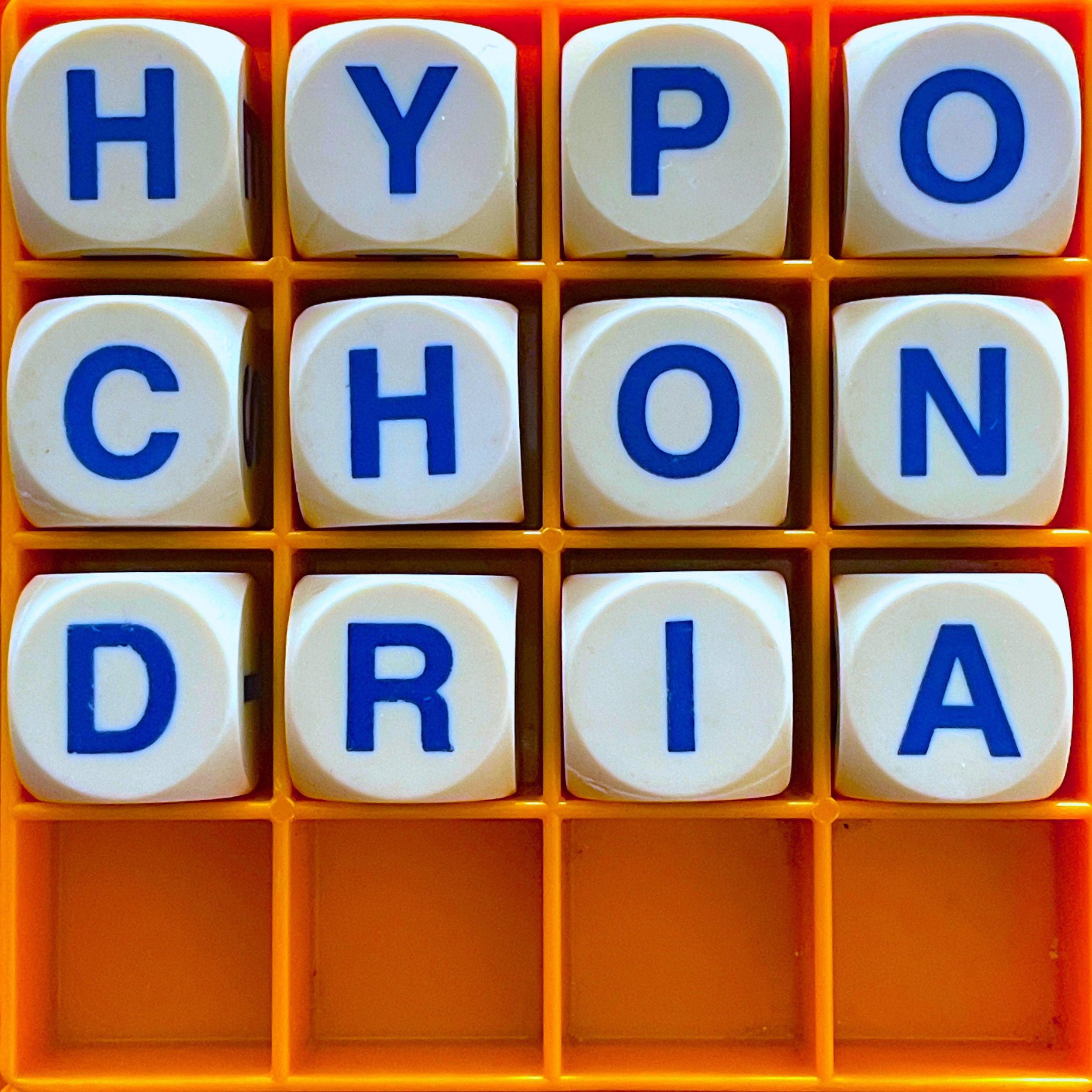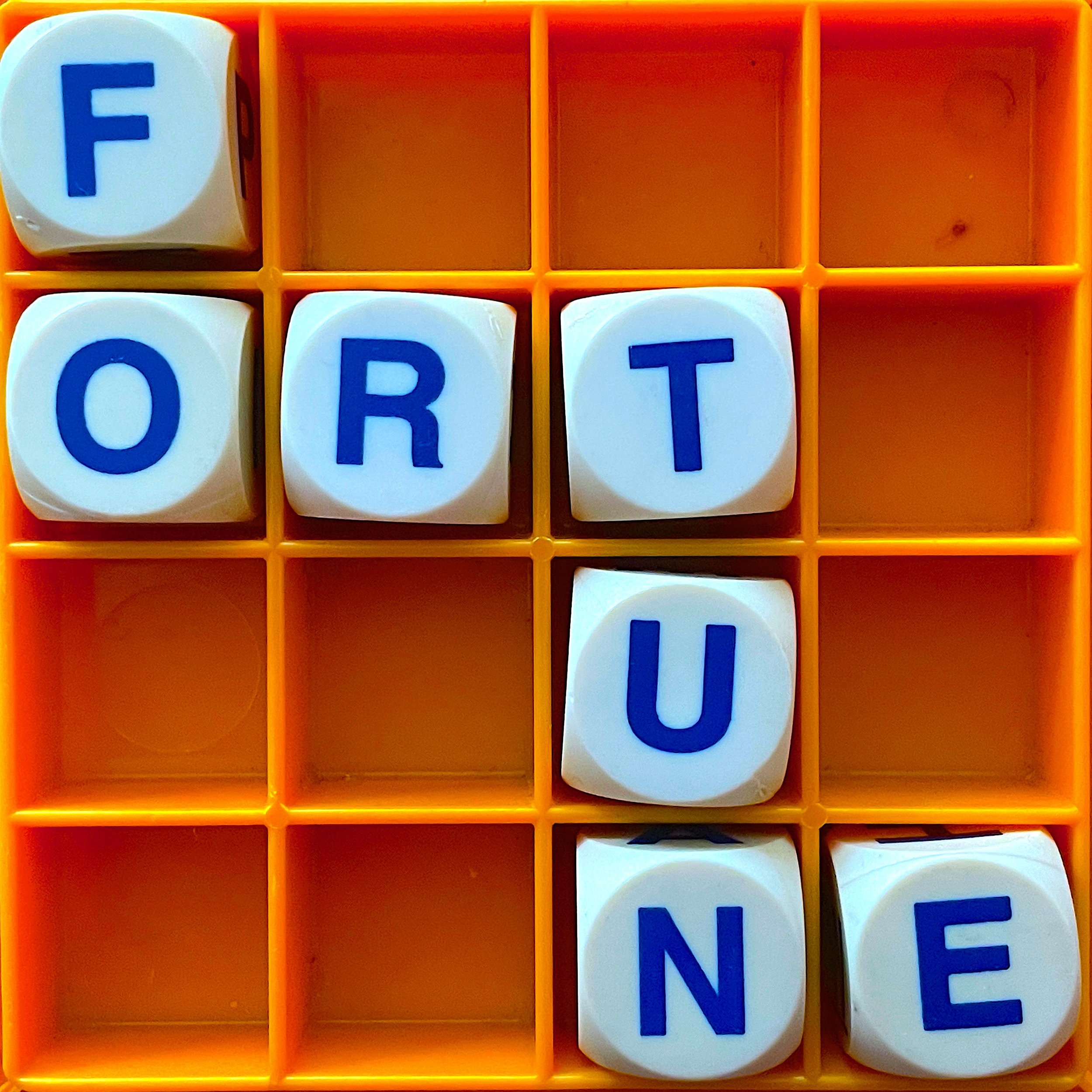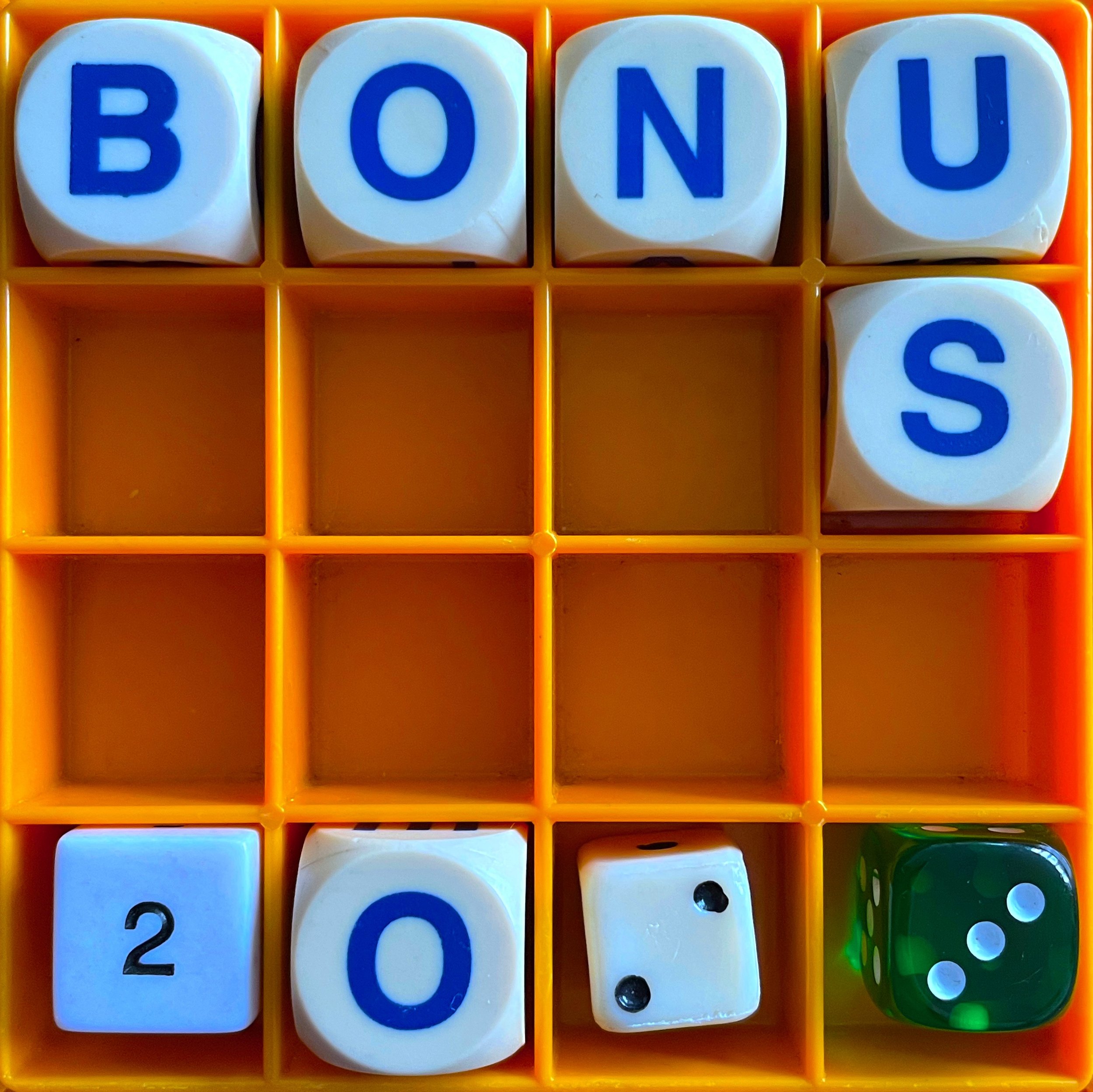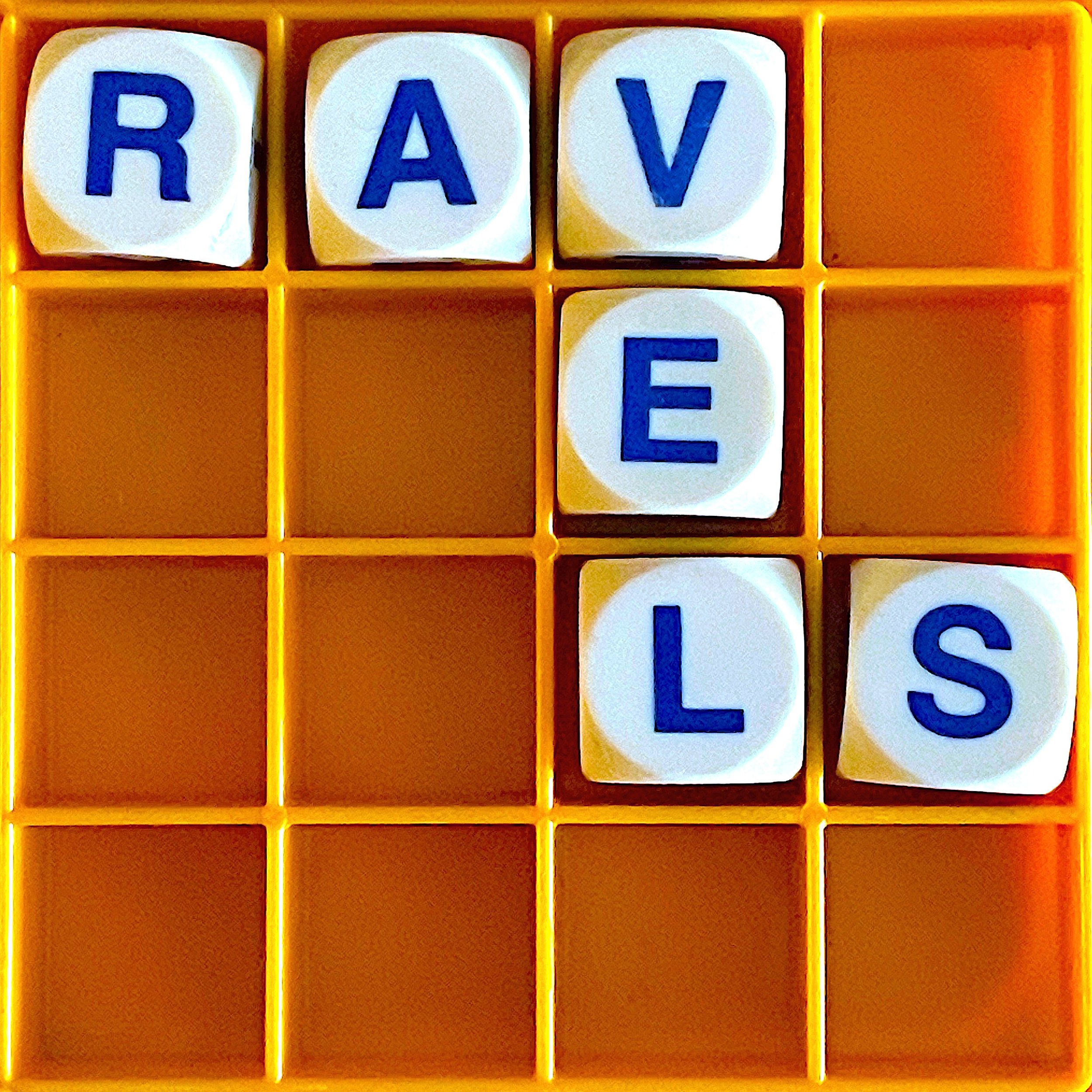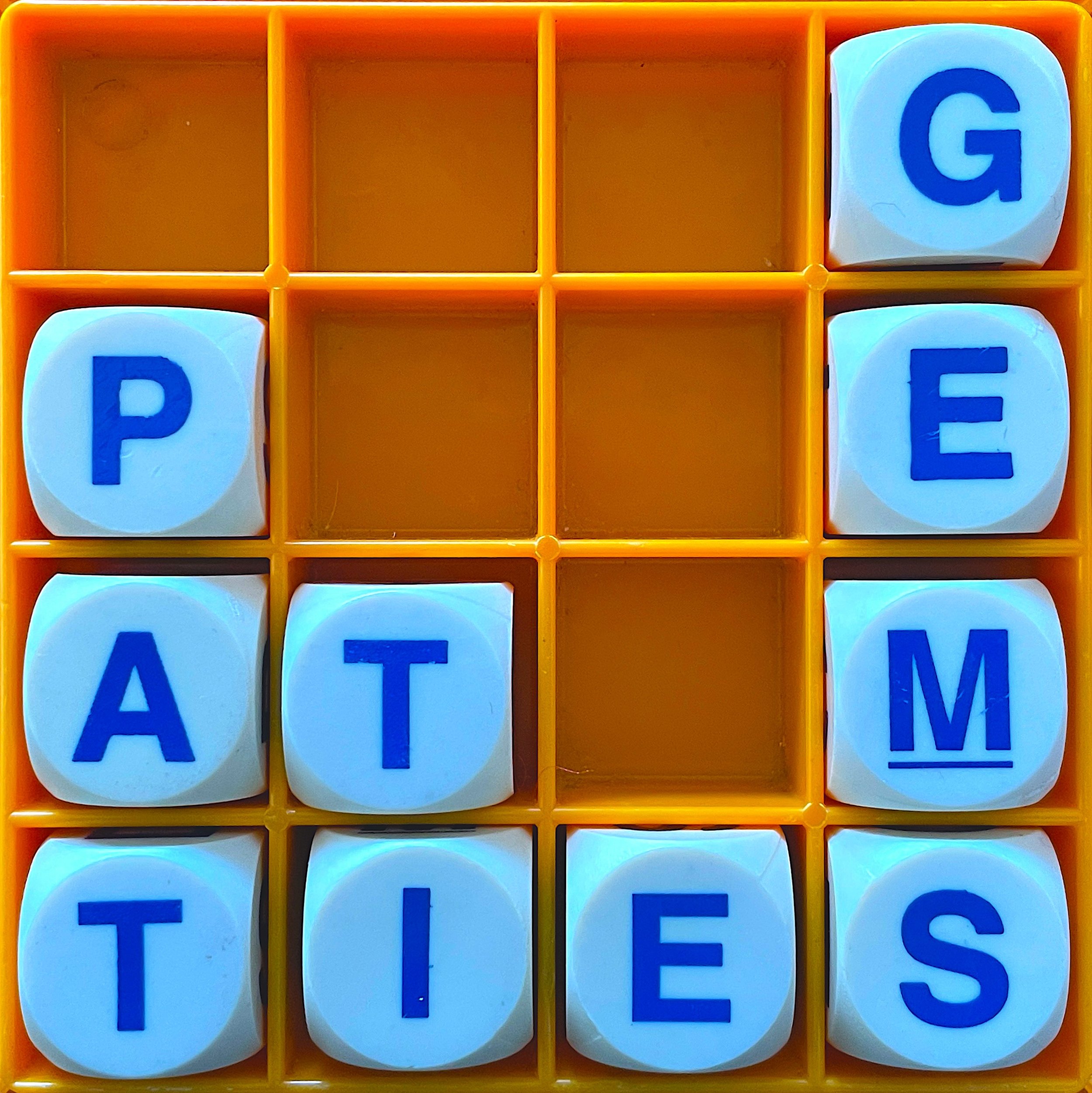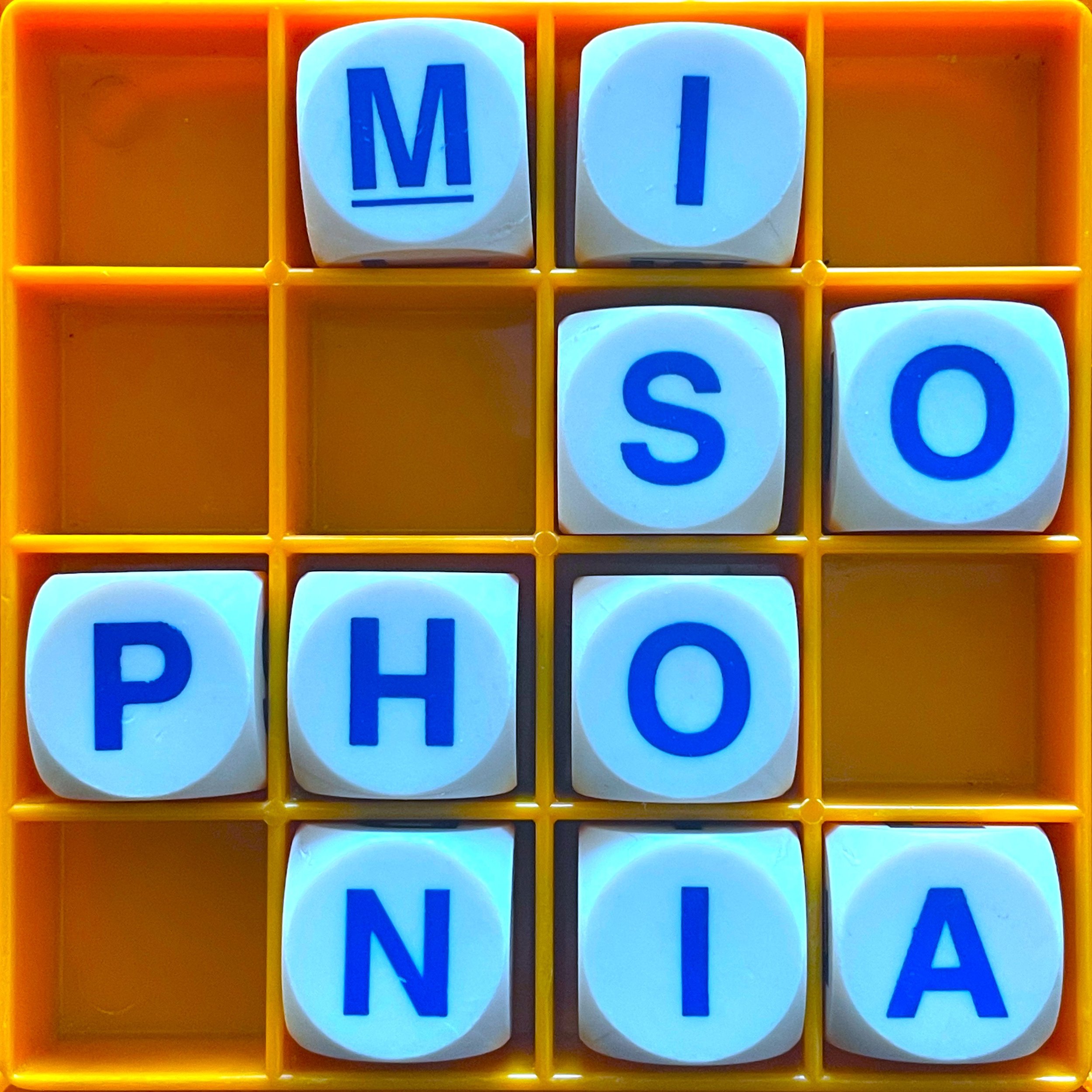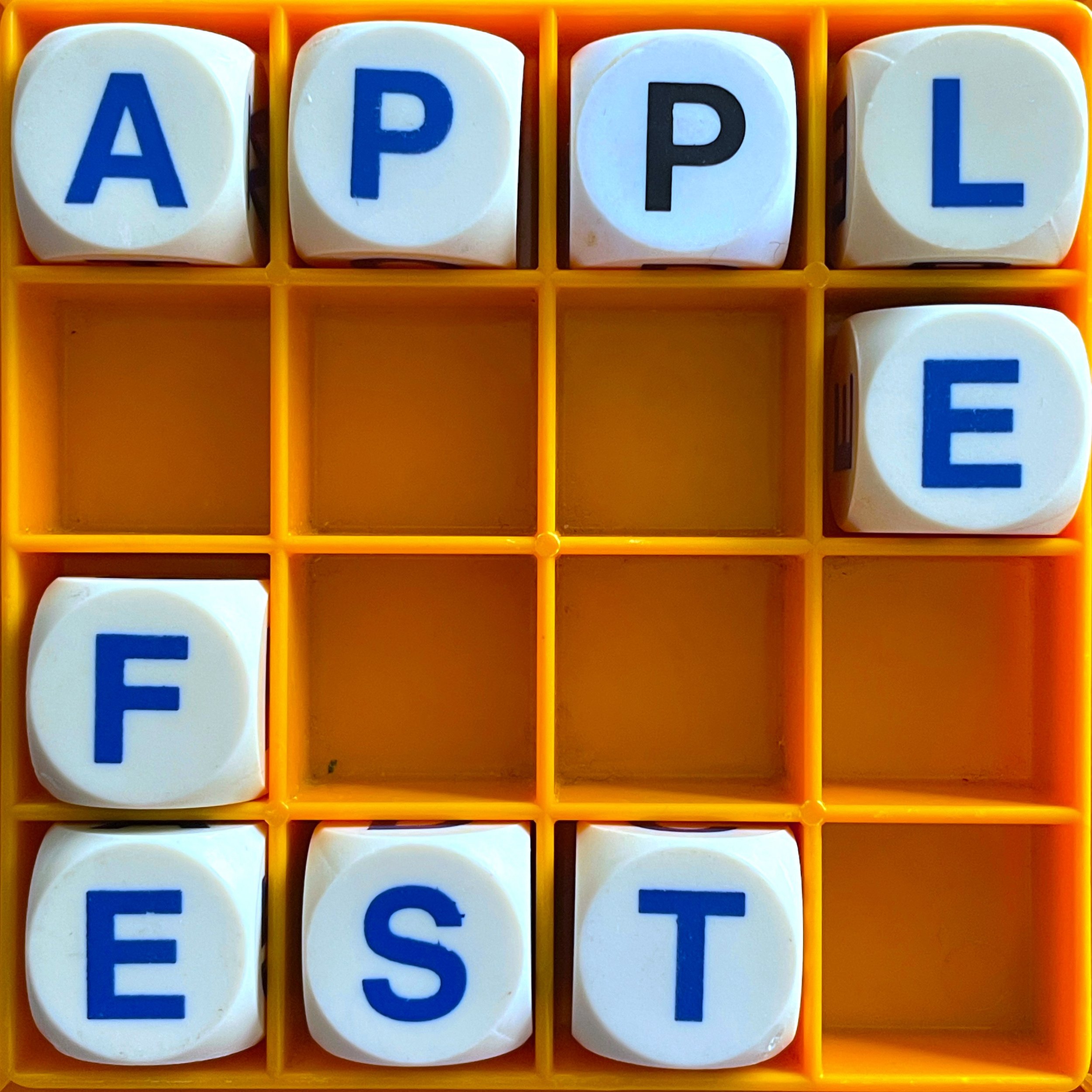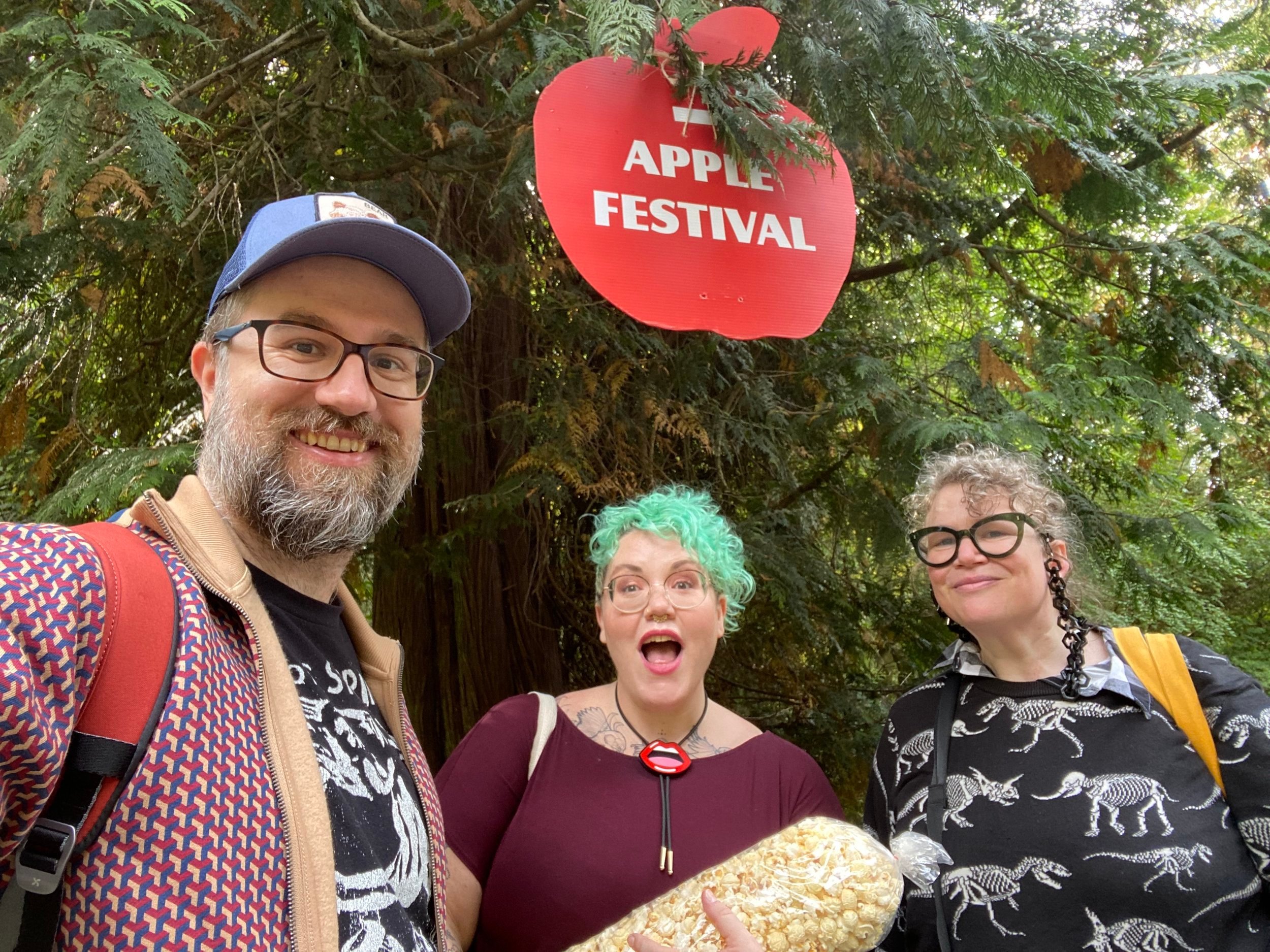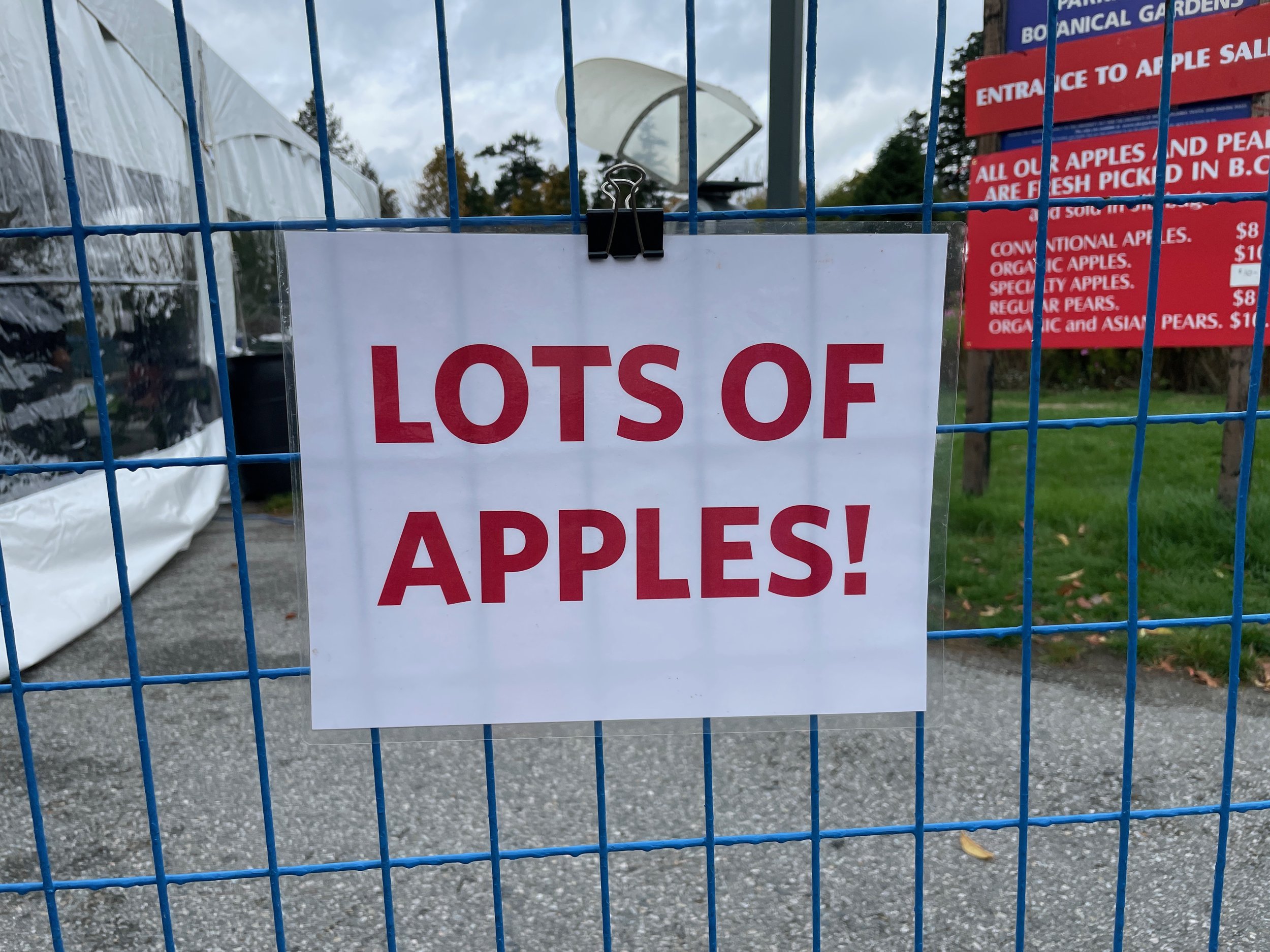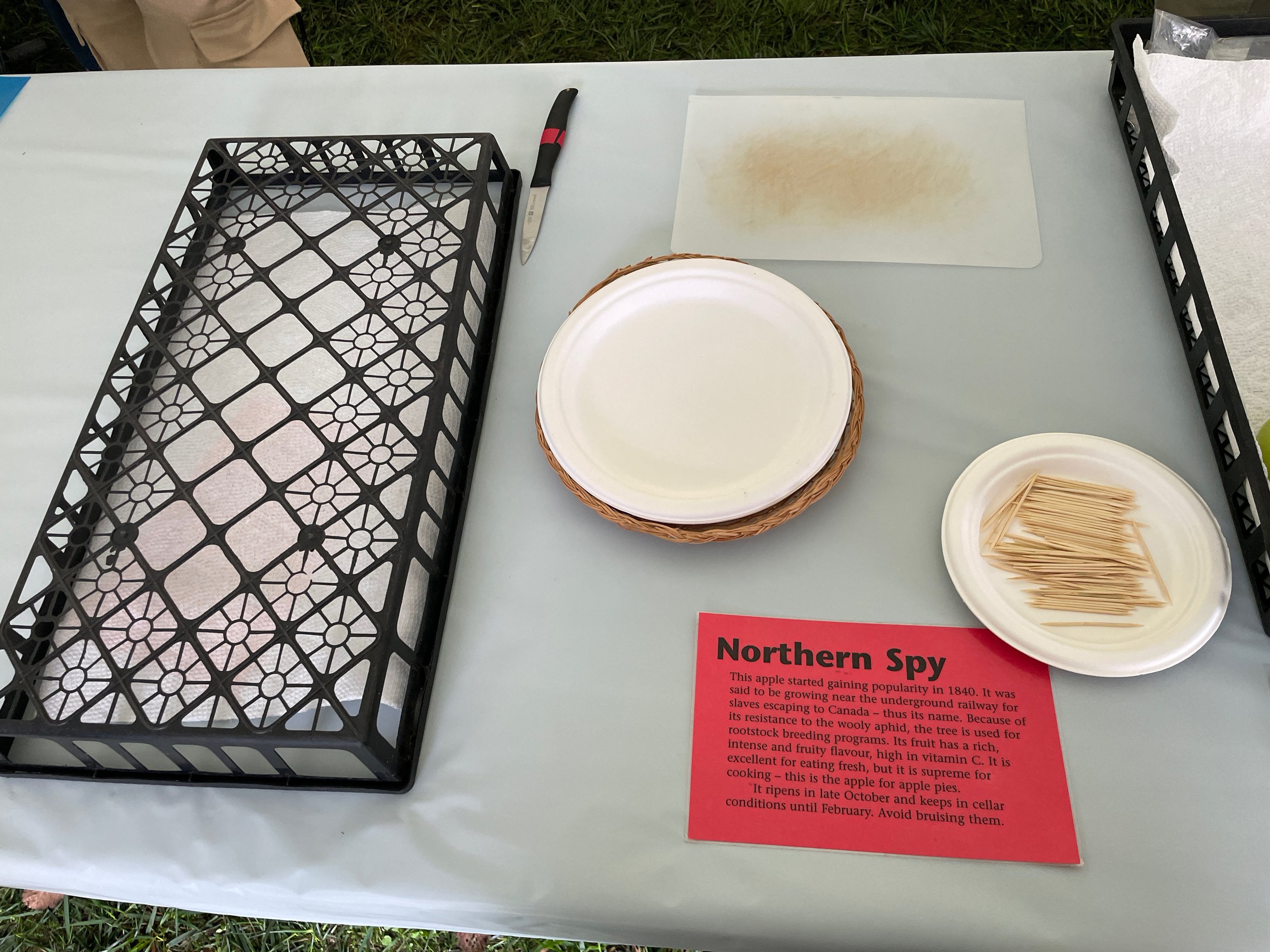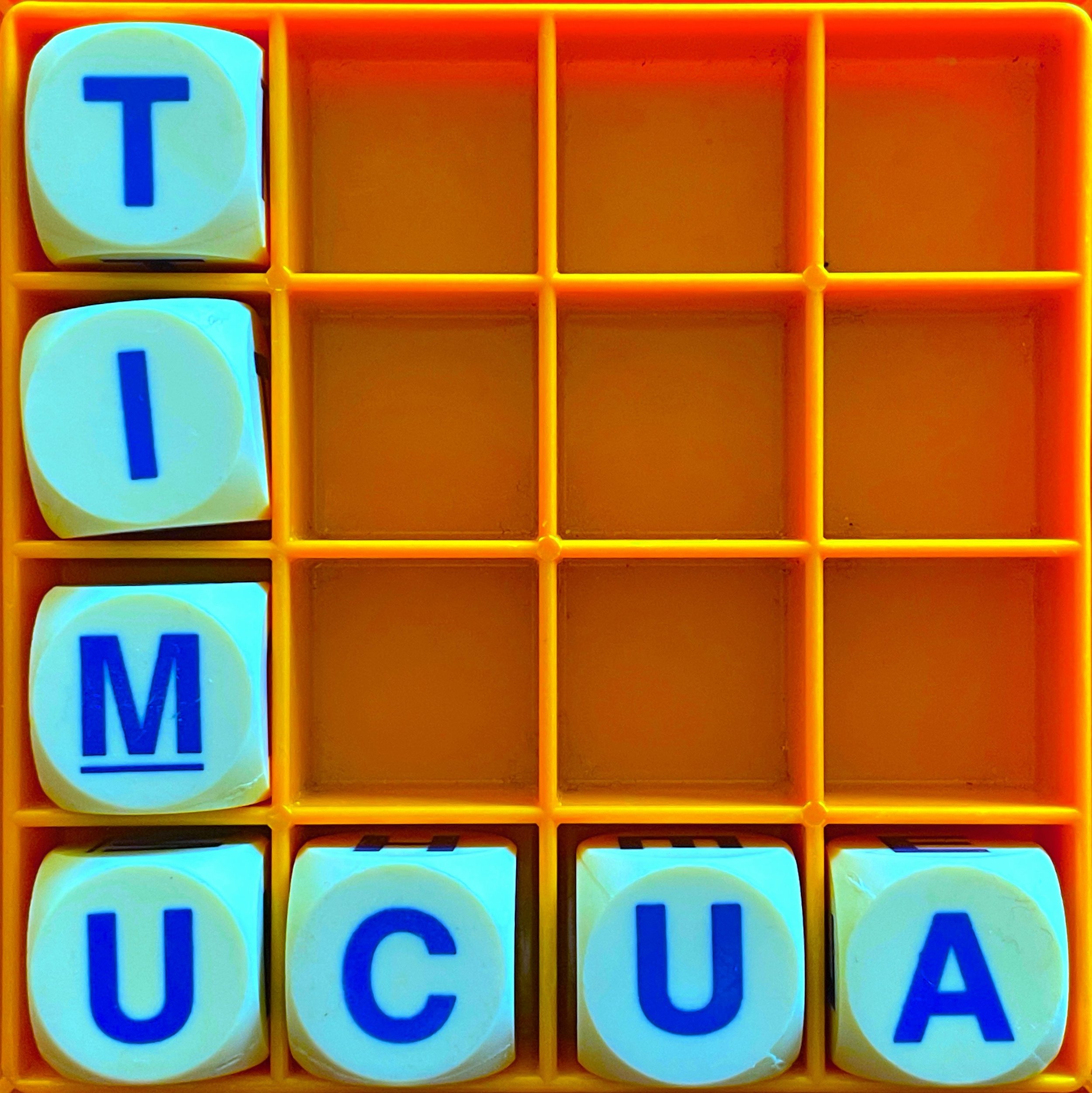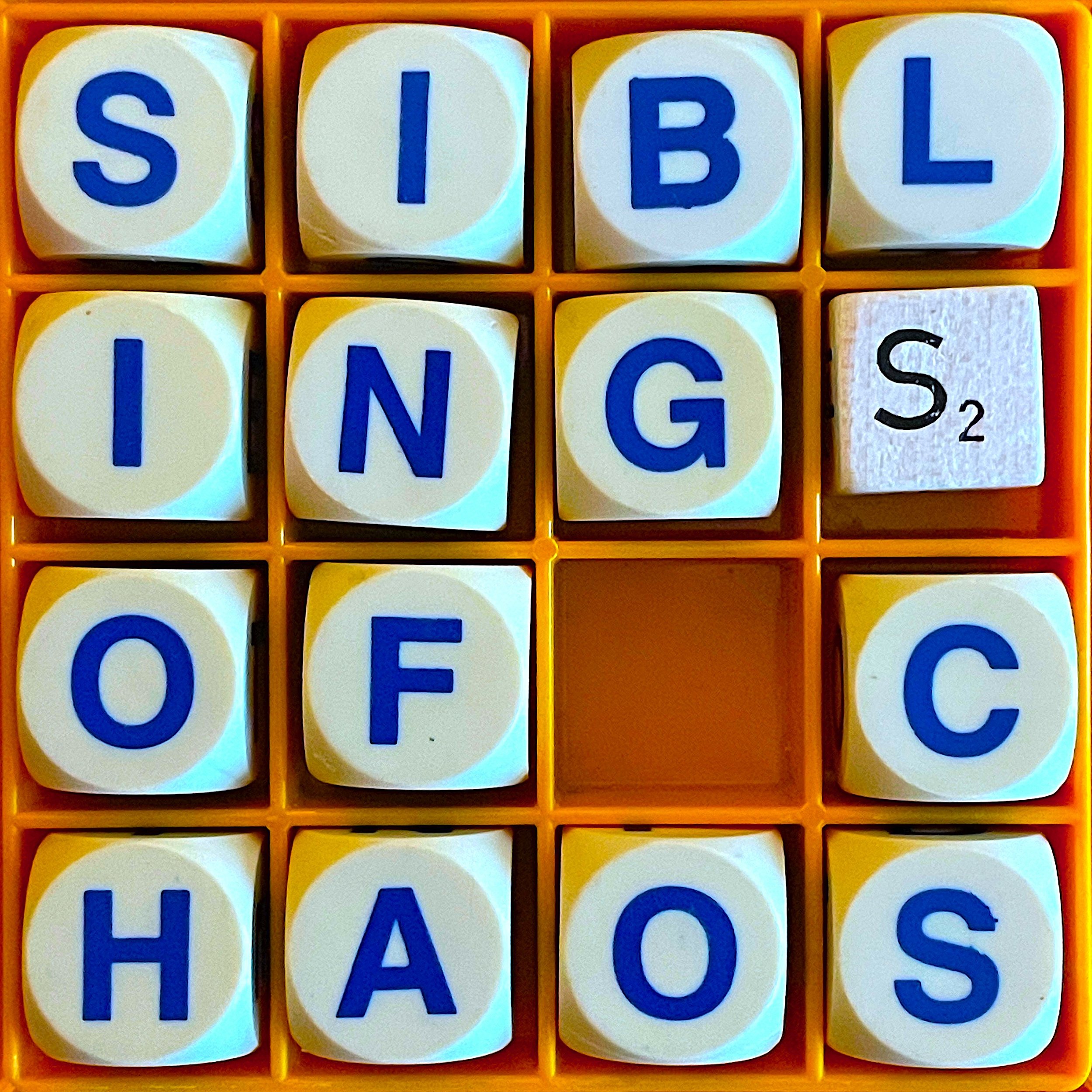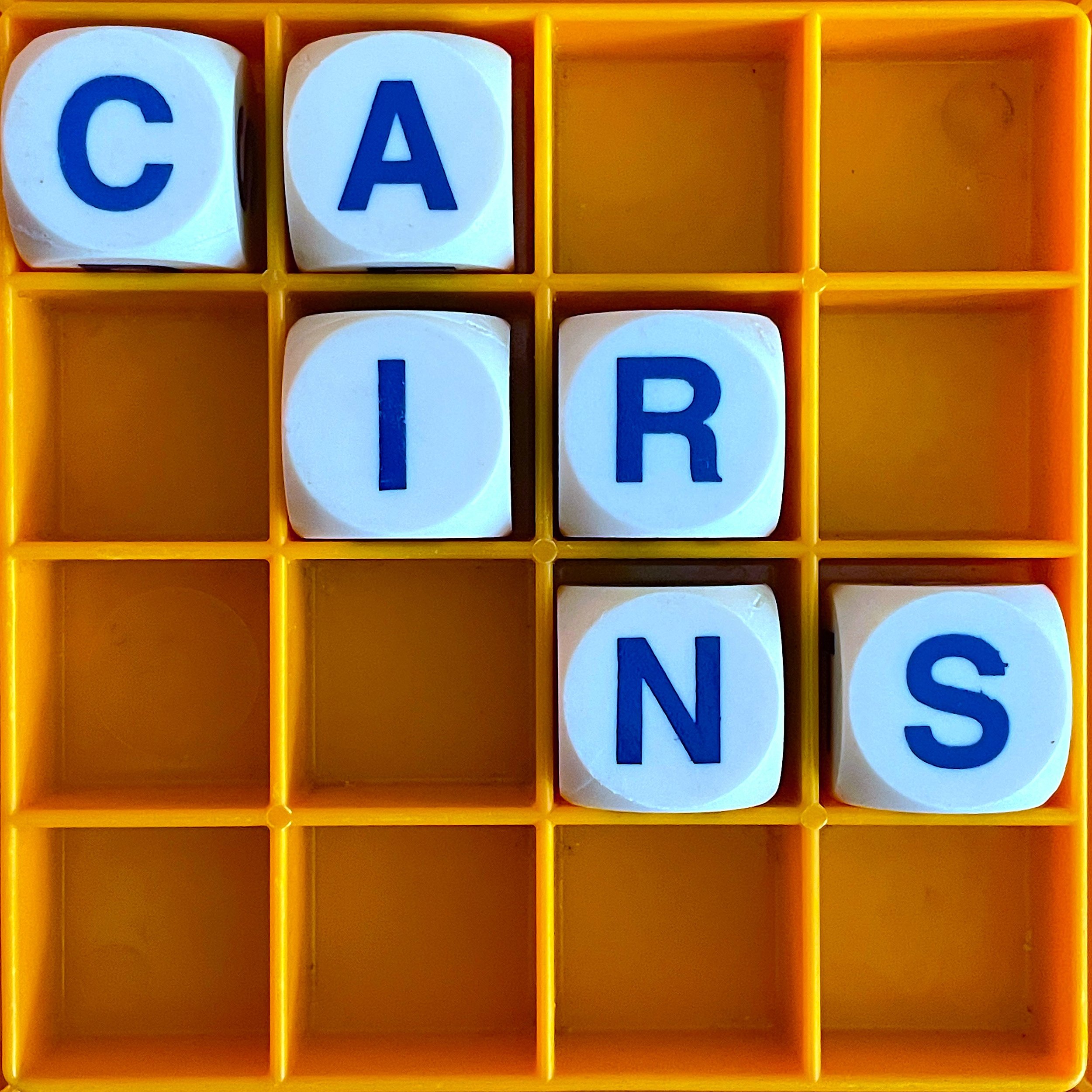CAROLINE CRAMPTON: A lot of the theoretical material that I'd read about hypochondria very much positioned it in this binary situation that either someone has, quote, real illness, i.e. illness that you can detect with a scan or a blood test or some other diagnostic tool, or "It's all in their head and it's made up," and those are the only two ways it can be. But, just personally, I feel like I'm pretty much constantly experiencing some combination of the two. And I think the idea that there is unwarranted fear: I don't think there is any such thing as unwarranted fear, to be honest.
Read moreAllusionist 190 Craters - transcript
ANNIE LENNOX: It really all came to light when I got the opportunity to name my first feature on Mercury - which was, side note, one of the most exciting things. To find something that is scientifically significant and then to get the chance to name it on another planet: super cool.
Read moreTranquillusionist: Person In Scene transcript
This is the Tranquillusionist, in which I, Helen Zaltzman, soothe your brain by saying a load of words that don’t really mean very much, to give you an emotional break by temporarily supplanting your interior monologue with something you can benignly ignore. This isn’t like the usual episodes of the Allusionist, there’ll be no learning, no journey, you don’t have to feel or think anything. And you’ll find previous editions of the Tranquillusionist at theallusionist.org/tranquillusionist, featuring champion dogs, gay animals, punchlines with no setups and more.
Today’s theme was requested by Lachlan, so long ago that Lachlan will have perhaps forgotten, but at some point in the past they wanted a Tranquillusionist featuring the characters from films that don't have names - so in the credits they’re listed as "man in shop", "lady with pram", "angry customer 2".
Read moreAllusionist 189 Mouthful of Fortune transcript
HZ: What is this principle that is at play here, with foods being lucky because their names sound like other things?
MIRANDA BROWN: The main principle is that there's this very ancient Chinese belief that dates, I think, to the first or second century AD during the Han dynasty, that things that share similar sort of qualities - it could be appearance, it could be sort of textures, and names - share in common some sort of cosmic resonance. So the basic principle is that if you sort of you can activate those resonances by, let's say, you want a lot of money, then you might wear clothes that have gold, or you could eat foods that sound like a lot of money or ‘get rich’, and that would in some ways attract that desired end into your life. And this is especially important during liminal times of the year or when seasons are changing or when you're celebrating a holiday. The future is being decided, or it's somewhat inchoate. So this is your way of making these desired outcomes realized.
HZ: Because I was wondering: if the foods are lucky, then why can't you eat them throughout the year? But is that just gaming the system in a way it should not be gamed?
MIRANDA BROWN: I think there's something special about holidays, which, are transitional periods, that I think make that kind of eating especially effective. And, I also have to remember that during Lunar New Year, it's the beginning of the year. If you're going to set your goals for the year, the beginning is a good time to start.
Read moreAllusionist 188 Lipread transcript
HELEN BARROW: If you want me to do a quick demo, I will give you three words then, totally without context. Okay? [She mouths three words.]
HZ: Well, it looked like you were saying, “baa, baa, baa,” but that, I assume, is not what you were saying.
HELEN BARROW: That wasn't what I was saying, no.
HZ: What were you saying?
HELEN BARROW: So you've got the right one in that you've got the B. Yeah? So one of them was a B. So if I give you some context then, if I tell you one was a furry animal, one can be a civic leader, and one can be a piece of fruit. Okay, right, I'll do it again. [She mouths the same three words again.]
HZ: …I'm bad at this.
HELEN BARROW: But the thing is, I have deliberately picked three words that I know look alike, because, to go into the technical side of it, consonant confusion group, you know, a set of lip shapes that look alike.
Allusionist 187 Bonus 2023 transcript
It is the annual Bonus episode - because the people who appear on this show always say so much good stuff, it doesn’t all fit into their original episodes, so at the end of each year we get to enjoy all the extra bounty. Coming up, we’ve got a mythical disappearing island, geese, human dictionaries, the dubious history of the Body Mass Index, a Eurovision thing that has puzzled me for years, Victorian death department stores, and much more.
Read moreAllusionist 186 Ravels transcript
MIRIAM FELTON: No; I think, as with most of these things, they're just named after people. The people themselves don't really have much association with it. Like the Earl of Cardigan didn't ever wear a cardigan as far as we know.
HZ: What? What?? I assumed that he was out there on the battlefields in a cardigan.
MIRIAM FELTON: Like a nice fair isle one with all the stranded colour work? That would have been awesome.
HZ: Just some kind of frontally divided knitted garment. But no?
MIRIAM FELTON: No.
HZ: What?!
MIRIAM FELTON: Not as far as we have any evidence.
Allusionist 185 Gems and Patties transcript
I've got a doctorate in this, and I have got dwarfism, but there'll always be an average-sized person whose only recollection of dwarfism is through Snow White, and yet somehow they'll construct themselves as the expert, and tell you it's not offensive or, “No, you've got that wrong.”
HZ: Also by having it on bags of sweets, that's kind of the ultimate “It's okay to say this in normal conversation”.
ERIN PRITCHARD: Yeah. But you do get through to some people, some people go, “I never realised that. I never knew that.”
Read moreAllusionist 184 Misophonia transcript
JANE GREGORY: Misophonia is an extreme reaction to certain sounds and not an aversion to all sounds, but an extreme reaction to specific sounds. And the most common sounds are eating and heavy breathing and kind of repetitive sniffing and coughing and things like that. Which are also sounds that most people don't like the sound of, but people with misophonia will get a much more intense reaction, so it might be more like a fight or flight kind of response, a feeling of anger or panic as opposed to feeling annoyed or irritated or disgusted by the sound. And there's a bit more to it in terms of what goes on around the sounds as well. So it might be feeling trapped or helpless when they can't get away from these sounds. It might be listening out for sounds, even when there aren't any, or continuing to listen to see if the sound is still going, even if it's stopped. And doing things to organize your life around sounds or to cope with sounds. when they happen. So most people who don't like a sound will just deal with it. For people with misophonia, they have to do things to not be able to hear it or to be able to cope with their reactions to it.
HZ: Rather than just grimacing.
JANE GREGORY: Exactly. I mean, there's also some grimacing, but probably also some glaring.
Allusionist Apple Fest transcript
Listen to this episode and find out more about the topics therein - and see photos of the apple festival - at theallusionist.org/applefest
This is the Allusionist, in which I, Helen Zaltzman, ask language, “How do you like them apples?” and language replies, “Those apples, you want to know how I like those apples,” and I say, “Not any more I don’t.”
Today we return to an autumnal classic Allusionist: the one where we learned all about how apples get their names. It is a really fun time, I’m happy to hear it again - and stick around to the end because there’s an extra new adventure: last weekend I went to an apple festival, and you’re all coming with me.
Two points of information before we begin: 1. Patreon now offers a free tier, so if you want to keep track of what’s happening in the Allusioverse - new episodes arriving and suchlike - then you can sign up there at patreon.com/allusionist to receive occasional updates. Then if you want to level up to paid membership, you also get loads of extra stuff: livestreams with me and my dictionaries; watchalongs such as the current season of Great British Bake-Off; the company of your fellow Allusionauts in the Allusioverse Discord community, which is a genuinely pleasant corner of the internet; and you get behind-the-scenes missives about each episode, last time Patrons received some real deep cuts about audio production. That’s for the paying patrons, but sign up for free and you’ll get an email a once or twice a month, no more inbox clutter than that, I promise. patreon.com/allusionist.
Point of information 2 is for you if you listen to the show using Apple Podcasts: apparently a new update will unsubscribe you if you don’t listen to the show promptly enough. And I don’t want to pressure you or add more deadlines to your life, so may I suggest you set the show to download because I gather this will mean you do not get automatically unsubscribed, or at least not as quickly. And it would be so sad if you thought the show had just gone away - which happens, I got a message from someone just the other day who thought the show stopped three years ago. It didn’t! I’ve been here the whole time!
And now, the Applelusionist, which was a collaboration with the Sporkful podcast - their episode was about how new kinds of apples are made, mine was about how apples are named, and why? Because back then, in the autumn of 2019, a new apple was about to be launched.
It’s been in development since 1997. It’s expected to be a huge moneymaker of an apple, being reliable for growers, and staying good for a really long time. Millions of trees have already been planted, millions of apples pre-ordered: it’s the biggest product launch in apple history.
It has its own trademarked slogans: “The Apple of Big Dreams™” and “Amazing Flavor + Infinite Possibilities™”
It’s the apple formerly known as the WA38: the Cosmic Crisp.
HZ: What's the big fuss about the Cosmic Crisp? Why is everyone so hyped about this particular apple? In your opinion.
DAN PASHMAN: Well, it's probably a little bit of a circular thing, because so much effort and expense has been put into making it: that creates the hype; the stakes of the thing create the hype. If it was just like a soft launch like, “Hey, we're going to plant a few trees, we're going to see how it goes and then maybe in twenty years we'll have the Honeycrisp," that's not as exciting.
HZ: You've really got to be incredibly patient, haven't you, when you're trying to come up with a new apple that's great, because you might not find out that it's failed for so many years. It is not an easy process. You have got to be a diligent and patient human who loves the company of trees.
DAN PASHMAN: The guy who first came up with the cross that became Cosmic Crisp retired before before the process ended. That's how long it took.
HZ: Didn't get to see it come to fruition, what what?
DAN PASHMAN: Oh. Very nicely done.
HZ: Don't reward me for bad behaviour.
HZ: On the Sporkful episode, Dan and I find out about what goes into developing a new kind of apple, and right here on the Allusionist, it’s all about apple names.
KATE EVANS: Coming up with the Cosmic Crisp name was a little agonizing initially.
HZ: This is Professor Kate Evans, who’s been leading the Cosmic Crisp breeding program at Washington State University since the apple’s father Bruce Barritt retired in 2008.
KATE EVANS: Various people have said it is actually worse than naming your child because people criticize you if they don't like the name and usually people don't say, hey that's a terrible name you named your child, why did you do that?
HZ: Don’t they?
KATE EVANS: But with an apple, you get a lot of that.
HZ: How do you name the apple that’s getting the biggest launch of our lifetimes?
KATHRYN GRANDY: Kathryn Grandy. I am chief marketing officer for proprietary variety management, and we have been contracted by Washington State University to commercialize the WA38, which is now called Cosmic Crisp.
HZ: It’s a catchier name.
KATHRYN GRANDY: As a marketing group we look at the category: what is the heritage of the apple? What's the parentage? How was it bred? Where was it developed and researched? What is the location that it's being grown in? And we evaluate the category. And then we look at the physical characteristics of the apple. And is it red, is it green, is it two colours, bicolour, what does it look like?
HZ: The Cosmic Crisp is very round, with pale firm flesh and shiny dark red skin covered in little light dots - the lenticels, the apple’s pores. It’s a good-looking apple; you’d cast it in a production of Snow White.
KATHRYN GRANDY: And then we taste it and what's the flavour profile: is it sweet, is it crunchy, is it juicy? And we collectively develop a profile for that that product, and then we do sensory testing with consumers.
HZ: The University worked with focus groups, doing taste and sensory testing.
KATHRYN GRANDY: Cosmic Crisp is the first apple named by consumers, which I find interesting.
KATE EVANS: And it was really just getting the apple in there, brainstorming with different groups to come up with words that they thought were descriptive of that fruit that they were looking at and tasting.
KATHRYN GRANDY: And we do try to guide them away from some of the more interesting names.
HZ: Such as?
KATHRYN GRANDY: People love to name fresh fruit after candy and we've had candy cane, candy apple, candy crunch, Jolly Rancher. Taking a fresh piece of fruit that's very nutritious and calling it Candy or Sugar just didn't feel right.
DAN PASHMAN: But can I ask, Kathryn: I would think that people know that fruit is generally healthy. And so anything that tastes like candy but is still fruit would be a good thing.Why is candy crunch or candy apple not a good name for an apple?
KATHRYN GRANDY: Well, my personal opinion is because we're promoting nutrition and health; but in general, they don't resonate with consumers. Consumers don't really like the sugar or candy implication either. So having had that feedback, describing it as candy wasn't necessarily the the right direction for us to go.
DAN PASHMAN: Got it.
KATHRYN GRANDY: Others wanted to name it after the state where it's grown, in Washington; but, being a global brand, it didn't necessarily resonate resonate outside of the state.
HZ: Are there any other terms or words that you preferred to steer clear from?
KATHRYN GRANDY: We had a list that we received, and collectively I think there was about two hundred and fifty names on it from growers and consumers, and we did get things that described the colour of the apple, like we received the name Red Darling, and Cardinal Crisp, and Red Beauty. And so I think the colour description’s always nice, but there are so many apples today with ‘crimson’ or ‘red’ or that description that it wasn't unique. And the combination of ‘Red Crisp’ or something like that is very difficult in today's world to trademark.
HZ: What are the criteria for a trademark?
KATHRYN GRANDY: It has to be unique and it can't be similar to another food product. An example would be ‘Red Beauty’.
DAN PASHMAN: That was on your list for Cosmic Crisp?
KATHRYN GRANDY: Yeah, for Cosmic Crisp - Red Beauty. There are other trademarks in other areas of the world that use similar name combinations and Cosmic Crisp needed to be unique not only to be trademarked in the US but it's a global brand and needed to have a meaningful name that went internationally as well, and that meant all the right things in other languages and other cultures. It gets complicated trying to to name something that will resonate with people in all cultures across the globe.
KATE EVANS: You've got to look at what does that name mean? What would that name mean in different countries with different languages? It is a challenge coming up with a decent name that works wherever you are.
HZ: It took around a year to settle on the name ‘Cosmic Crisp’.
KATE EVANS: And the word ‘cosmic’ came up quite early on because somebody associated the appearance of the fruit with the cosmos. It can be a relatively reddy purply kind of background with almost looks like little white stars over it. Those are the lenticels on the on the skin; all apples have them and they in some cases are a little more prominent than others in terms of appearance. And so this: oh, okay, well it reminds me of the cosmos.
DAN PASHMAN: I think freckles is a better analogy.
HZ: It reminded me a bit of a dappled horse.
HZ: Nobody asked us, though.
KATE EVANS: So the word ‘cosmic’ came in at that point and crisp is very very obvious word to go with the apple.
HZ: It is a crisp apple. Also ‘crisp’ nods to one of the Cosmic Crisp’s parents, the Honeycrisp. Its other parent, the Enterprise - eh, bad luck, Enterprise.
KATHRYN GRANDY: After the name was selected and initially growers and even some people from WSU didn't really like the name Cosmic Crisp
HZ: Oh, why not?
KATHRYN GRANDY: They said it's like The Jetsons, too futuristic.
HZ: Is that bad?
KATHRYN GRANDY: You know, I love the name; and being futuristic and like The Jetsons I think is pretty cool. But the one thing I've learned being in marketing is everybody is an art director. Somebody wanted to named Cosmic Crisp ‘Sparkle’. And to me that makes me think of dish soap. And it is a trademarked name for paper towels. So I think there's a lot to naming it properly.
HZ: There's an apple called Strawberry. How is that allowed? It's just confusing.
KATHRYN GRANDY: Well, maybe it looks like a strawberry.
DAN PASHMAN: Maybe it has hints of strawberry in its flavour.
HZ: Not good enough. I like that there's one called Jonathan as well. That's the normcore apple.
DAN PASHMAN: But is there one, Kathryn, that you haven't had any involvement in that you're just like, “Oh man, that's a great name”?
KATHRYN GRANDY: I like the name Snapdragon. That’s a New York apple, and the tagline’s great: “A monster crunch.” I think that's pretty descriptive. They have a nice logo.
DAN PASHMAN: Helen, do you have a favourite?
HZ: Not yet. I feel like the best could be yet to come. And also I find it difficult to separate the quality of the name from the apple. So for instance, I enjoy a Jazz apple, therefore I like the Jazz apple name, but do I? Do I?
KATHRYN GRANDY: And why was it named ‘jazz’? I don’t know.
HZ: It's a fun word. But then I don't think I don't feel like the apple is what jazz music would taste like.
DAN PASHMAN: I agree. I feel like like it's a name that like sounds good on the surface, but upon further reflection makes no sense.
HZ: I think it's more like a jaunty brass band number or something.
DAN PASHMAN: Yes!
HZ: I have a question. Red Delicious. How dare it.
KATHRYN GRANDY: Oh boy. Are you not thinking it's so delicious any more?
HZ: Come on. Who is thinking it is?
DAN PASHMAN: Helen and I are going to team up on a class action lawsuit for false advertising.
HZ: It is red. I’ll allow that.
KATHRYN GRANDY: We're moving it to the potato category, because that’s what it tastes like these days.
HZ: I think some people be surprised that when they are mentioning an apple by name, they're actually mentioning a trademarked word. They might think, “Oh, that's just what it's called. Like a carrot is called a carrot.”
KATHRYN GRANDY: Yeah. I notice with Cosmic Crisp people are already trying to shorten it to Cosmics, and because of our trademark protection you know we of course want them to say Cosmic Crisp, but it's kind of like cola and Coke or Xerox and copy. We have to be very protective and careful to use the trademarked name so that we we don't lose it.
HZ: Is there a way that we should be pronouncing the r in a circle at the end of Cosmic Crisp?
KATHRYN GRANDY: Just use it.
HZ: I’ll mime it with my hands. Do you know of any apples that were called ‘dreary fluffball’ and then they renamed them ‘fantasma mouthgasm’ so that they would sell better?
KATHRYN GRANDY: Ohhhh, gosh.
DAN PASHMAN: Did you just say ‘fantasma mouthgasm’, Helen?
HZ: You can have that.
HZ: It’s not completely beyond the realms of possibility. Some apples do have very grandstanding names.
JOANNA CROSBY: Laxton’s Superb, Laxton's Epicure, Laxton's Exquisite, Laxton's Peerless, Laxton's Triumph. You get the idea - apples grown by a 19th century chap called Laxton. He is not shy on advertising, was Laxton.
HZ: This is Joanna Crosby, who studies the social and economic history of apples. I asked her about how apples used to be named before focus groups and taste testing and marketing departments were part of the process.
JOANNA CROSBY: When a new variety of an apple comes up, a lot of the time it's named after what it looks like.
HZ: Crimson Delight, Pink Pearl, Brown Snout, Knobby Russet...
JOANNA CROSBY: So for instance, there's an apple that probably dates back to the Roman times. You can still eat it today - which is quite an amazing piece of time travel, I think - and it's called the Court Pendu Plat. Which means 'short, hanging and round', which it is. Once you've seen it, you can't forget it; it looks like a like a flat peach, like a doughnut peach, in shape. It is really flat, and it's really round. There's also apples like the Red Streak. There's also Sunset and Suntan. Now they have the most beautiful coloured skins. There's Cats Head, which is indeed exactly the shape of a cat's head. You could put some ears on it, make a little Halloween lantern out of a Cats Head apple. Actually the tree related to an apple, the medlar. It's like an early cousin of a sweet apple tree; it has a small fruit on it. Its country name is, I'm afraid to say, 'cat's arse', because that's also what the fruit looks like.
HZ: It does. Luckily - or unluckily? - there are lots of apple names that are not referring to appearance.
JOANNA CROSBY: Then Orleans Reinette - reinette means 'little queen', and they were all named in the 18th century in the periods when we weren't at war with the French, and all the reinette apples were when France and everything French were incredibly popular. There's one called Mere de Menage, which sort of means housewife, but it's a much much more beautiful name for an apple than housewife.
HZ: Envy; Flamenco; Jonagold, a portmanteau of golden delicious and the Jonathan apple...
JOANNA CROSBY: There's one called Clear Heart, Early Transparent, Colonel Vaughan, Cornish Pine, Cottenham Seedling, Chivers Delight...
HZ: Splendour, Peasgood’s Nonsuch, Foxwhelp, Slack-ma-Girdle… Northern Spy! Green Cheese?
JOANNA CROSBY: There's Pitmaston's Pineapple, because it tastes of pineapple. So there are ways of describing an apple which gives you those names.
HZ: An apple’s name might contain information about its origins - for instance a pippin is an apple grown from seed, or its name might contain the apple’s place of origin: Roxbury Russet, Carolina Red June, Beauty of Bath, Westfield Seek-No-Further...
JOANNA CROSBY: There's one called a Kentish Fillbasket, and they are well-named because one apple would indeed fill a basket. They are huge. If Isaac Newton had under a Kentish Fillbasket apple, he would have been knocked out cold and would never have thought about gravity again probably.
HZ: And a lot of apples have named after people: perhaps the person who first grew them, or the person who popularised them...
JOANNA CROSBY: And the Bramley apple: named after the gentleman who first exhibited it to the Royal Horticultural Society. So he is saying, "Here, this is my apple," but really the Bramley apple should be called the Mary Ann, because the young lady who grew the pip from which the Bramley apple and then all Bramley apples have come was called Mary Ann Brailsford. So perhaps we should claim it back for her.
HZ: Was Granny Smith a real person?
JOANNA CROSBY: Granny Smith is named after the lady who grew up from a pip. She was properly called Mrs Ann Smith. And it comes from New South Wales; Granny Smith herself came from Sussex and emigrated to Australia and she found a seedling tree growing in a creek. And so it is her apple.
HZ: She didn’t name it after herself; only a couple of years after discovering and propagating her apple, she died, and a little while later other growers named it in tribute to her. Other apple tribute names are less sweet, and were more... compulsory, say if you worked for some aristocrats and cultivated a kind of apple on land they own.
JOANNA CROSBY: It is sensible if you want to keep your job as an estate gardener if you name your apple after the lord or the lady who you're working for. So we have Lord Derby, which is another large cooking apple. There's also one called Lady Henniker. Now, history does not record how delighted she was to be named after this apple or this apple named after her, because it is quite an ugly lumpy misshapen big green apple. She may not have been delighted.
HZ: Do you think it was an insult, if the orchard-keeper hated her?
JOANNA CROSBY: Well, I don't think so. No, but it's not the daintiest of apples, so I do wonder why she came to mind.
HZ: The problem with this system - well apart from issues of meritocracy vs aristocracy, or using the apple names a an insult - was that you might have had a situation where the same apple is growing miles apart under two different names. Or more than two.
JOANNA CROSBY: An apple variety, if you look up a variety, it can have something like 20 names. But it's the same apple. So now in 21st century we are DNA-profiling apples, and I think we will actually find that the number of varieties will reduce because we will have worked out that these apples are one and the same thing.
KATE EVANS: I have also spent a fair amount of time going through some of that material and testing it, kind of like DNA fingerprinting it, to determine whether or not things are actually the same but with different names. When you start to look at the history of how some of those old varieties have moved into different places, sometimes they came into a particular region and were given a local name and then got absorbed into the into the national collection at some point with that name. And then you find out actually there are two or three different - we call them accessions, different entries into the collection that are that are all different names but in fact they're all the same thing.
HZ: The Victorians decided something had to be done about this, and with DNA testing not yet an option, in October 1883, the National Apple Congress was held in London. Growers from all over the UK sent in their apples in to be catalogued and categorised by a committee of fifty fruiterers - they received 10,150 apple submissions altogether.
JOANNA CROSBY: And they put them all out in bowls and first of all they looked at them and tried to see if any were the same variety.
HZ: The apple-growers also submitted information about such things as what conditions the apple grew in - soil and subsoil, sheltered or exposed places, what the trees are like - and they had to list what kinds of recipes the apples lent themselves to.
JOANNA CROSBY: And the public came in to look at this fruit; they'd never seen anything like it. And they actually had to extend the opening hours of the apple congress to allow everybody to come in and see it.
HZ: And while the public were having fun being dazzled by all these apples, the committee had to catalogue all the fruit, record each apple’s colour, size, shape, texture, time of the season it ripes, and whether it’s to be used for dessert, cooking, or cider. They found that there were 1545 kinds of apples at the congress, exhibited under 2020 different names or variations on similar names. Some apples had had several different names. For instance, the Scorpion apple also appeared as D’Eclat, Harvey’s Wiltshire Defiant, and Russian Transparent. Those are all strong names - very evocative. How do you choose the best one that the apple’s going to be known as henceforth?
HZ: I was wondering how you, Dan Pashman, would settle it to choose the apple name that would be the name that the apple got to keep. Throw apples at each other?
DAN PASHMAN: Am I like the king in this situation - do I decide by edict or is this a group effort?
HZ: Well, I mean, it's your apple fantasy; but sure, you can be King Apple for the day.
DAN PASHMAN: I'm the Apple King. I guess I would want to form a focus group of one. And I would want to eat the apple and do some sort of like free association exercises to figure out what the apple reminded me of, how it made me feel; and then I would pick which name seem closest to that.
HZ: And would you think, "Okay, this apple tastes better when it's known as the Royal Crisp versus when it's just Jonathan's apple"?
DAN PASHMAN: I'm sure that makes a difference. I'm sure that the name is make a difference in how you perceive the taste so you'd have to then do a different kind of test. I wouldn't just wanted to issue it by by edict, now that I think about it, Helen; I would bring all of my subjects together and I would divide them up into a scientific study to see how the name affects the taste perceptions you have. You'd have to run studies in both directions: how does the taste dictate the name, and how do different names dictate the flavour perception?
HZ: At the same time, you could decide to destroy hierarchies and create a republic through the medium of apple taste testing.
DAN PASHMAN: So you're saying to turn it into a democracy? To, of my own volition, relinquish all my power?
HZ: Yes, it's for the greater good. Through apples. Now that you have learned how much time and work goes into an apple when you're reaching one now are you more or less appreciative of it. Are you thinking 'gosh this is just the result of years if not centuries of cultivation" or are you thinking, "wasn't worth it, it's just an apple"?
DAN PASHMAN: I think it was worth it! I mean, I didn't have to do anything. I think that the folks who dedicated their lives for this are super passionate about it. So they're happy, and we get to eat the apple, so we're happy; everyone wins.
HZ: That was the Sporklusionist, now brace yourself for more appletimes because we’re about to go to Applefest 2023.
HZ: I moved to Vancouver BC in January of this year. And I’d heard about the apple festival at the University of British Columbia and been told it was a hot ticket. So I set a calendar reminder to buy tickets, made sure to book early for the tasting tent. And when I arrive at the first entry session of the first day, with my husband Martin and our friend Hannah, there’s a line to get in, everyone hyped to look at apples; eat some apples; and see some fun apple names, maybe it was just me feeling hyped about that. A little apple-shaped stamp on the hand, and we’re in.
There are apple pies and dried apples and apples getting hand-crushed for juice, and you can buy apple saplings and 3lb bags of apples of many kinds.
HZ: Topaz. Refreshing, sharp, sweet, mellows with age. I mean, that's... Something for me to aspire to, but I feel I'm going the other way.
HANNAH McGREGOR: I'm definitely getting sharper and more acidic with age.
HZ: I'm getting withered and bitter without having achieved true ripeness.
HANNAH McGREGOR: Sorry, could we just check in about what it means to achieve true ripeness?
HZ: Each apple varietal had a little card with background information about the varietal's provenance and tasting notes.
HZ: “Gloster 69. Juicier and stronger flavoured than Red Delicious.”
HANNAH McGREGOR: “Rubinette”. I'm creating a Rubinette. It's a Reuben sandwich, but for ladies.
HZ: Finally something for ladies to get their tiny hands around.
HANNAH McGREGOR: “Winter banana”?!
MARTIN AUSTWICK: Oh no, that's confusing. It definitely looks like an apple. It’s not even the right colour?
HZ: Brown snout!
MARTIN AUSTWICK: Is this the insults table?
HZ: "The Brown Snout is subject to splitting at crotches."
HZ: Fun as it is to read the labels on the apples, we had our much anticipated appointment at the tasting tent, to eat tiny cubes of around forty different types of apples all grown here in British Columbia. We start with A for Ambrosia.
HZ: “Ambrosia is a chance seedling. Good size, crisp, sweet, low acid, very juicy.”
HANNAH McGREGOR: This is sweet.
HZ: Aurora, another BC apple. Belle de Boskoop, that's a sexy name. That's a more rowdy one, acidically.
HANNAH McGREGOR: Oh, I like some rowdy acidity.
HZ: Blue Pearmain. “Old New England favourite dating back to 1700s.” That's a large apple. A bit fluffy. I'm no on the blue pearmain, I'm afraid.
HZ: Braeburn. Bramley’s seedling. Cortland. Cox’s Orange Pippin.
HZ: By the time we reached the end of the afternoon, Apple alphabet, I think we'll be kind of over apples.
HANNAH McGREGOR: Not yet.
HZ: Not yet, we've got to the Ds. Discovery, pretty good. Ooh, Elstar. Empire. Fameuse, the Snow Apple - that's a beautiful name, both of them. It's because it's white. It's so white! With this dark red flesh. It's a very dramatic apple.
HZ: The Fameuse is the oldest apple varietal at the festival, its card said it “has been known in Quebec since the first settlement in the 1600s.” I thought ‘has been known’ was weirdly passive as to how it came to be in Quebec; the only apples native to North America are crabapples, although since the Europeans planted apples here, many varietals have been begotten and cultivated. This one, the Fameuse or Snow Apple, did well in Canada because it can handle the cold.
HZ: Golden Delicious, boo! Ah, so pointless. People know you don't want to fill up on Golden Delicious here, so we've got to go. Oh, we're coming up to Grimes Golden.
HANNAH McGREGOR: Ooh, that's exciting.
HZ: I preferred her earlier work. I'm gonna guess someone called Grimes put his name on it?
HZ: I guessed right. Thomas Grimes put his name on the Grimes Golden, because the apple originated on his farm in 1832 in what is now West Virginia.
MARTIN AUSTWICK: Golden Delicious is the spin off of Grimes Golden.
HZ: Oh really? It's like the Chet Haze of apples.
HZ: There were several eponymous apples in the tasting tent, like Canada’s national apple, the Mcintosh, discovered by John McIntosh on his farm in 1811 - it’s this apple that lent its name to Apple Macintosh computers. There were apples named after their place of origin, like the Kent, an apple born in the same English county as me. There were some portmanteau apples, like the Idared, a red apple developed in Idaho.
HZ: Hey, and we're over halfway through the alphabet. The Apple Alphabet.
HANNAH McGREGOR: I'm really proud of us. This one has a very fun story.
HZ: Newtown Wonder. “The original Newtown Wonder tree was seedling growing out of a thatched roof of a pub in King's Feet in Derbyshire in the 1870s, presumably the result of a pit dropped by a bird.” It's amazing this doesn't happen more. “It is very large.”
HANNAH McGREGOR: I like it.
HZ: Oh yeah. It's feisty.
HZ: Our apple tasting was, alas, incomplete: in one of the pitches there was just an empty plate next to the apple's name card.
HZ: I'm afraid Northern Spy is not here. Its cover must have been blown.
MARTIN AUSTWICK: It's there, you just can’t see it; it’s disguised.
HZ: “Oaken Pin received their curious name after a wooden pin once used as a door fastener in England in reference to the fruit’s long and egg like shape.” Ooh, thank you.
HANNAH McGREGOR: No good.
HZ: Then there was the Piñata® apple, created by German researchers but its growers in Washington State gave it the trademarked name Piñata® - which is a registered trademark in the USA - was a portmanteau of two of the names the varietal goes by in Europe, Pinova and Sonata. So if you were hoping that when you hit the apple with a stick, sweets will fall out, no luck there.
After that, there was the Prima: a partial acronym or applenym. “This cultivar, introduced in 1970, is the first of a series of disease-resistant apples to be released from a cooperative breeding program by research stations at the Purdue, Rutgers and Illinois Universities, hence the prefix PRI. Its complex parentage provides genetic resistance to scab.” What a useful family inheritance.
HZ: Look at these beauties. Red Rome. “It's popular because it blossoms late.” I'm excited to taste a Rubinette.
MARTIN AUSTWICK: It's a great name.
HANNAH McGREGOR: I think Rubinette would be a really nice pie apple pie.
HZ: Mmm. Yeah. Really good flavour. And handsome. No uggos in in our pies.
HANNAH McGREGOR: Yeah, I have a strict rule.
MARTIN AUSTWICK: I'll have another one of these, just to remind myself.
HZ: Yeah, that's really good.
HZ: There were a lot of tasty apples up in this section of the alphabet - Shamrock, Spartan, Spencer, Staymen Winesap, the Topaz…
HZ: We’re so close to completion. Wolf River. Oh, these are massive. Look at them.
MARTIN AUSTWICK: See, Wolf River just sounds like a horror movie in which a young woman gets trapped in a fruit.
HZ: World Number One. That's a grandstanding name.
APPLEFEST STAFF: [rings bell] Five minutes!
MARTIN AUSTWICK: I feel like calling an apple ‘World Number One’ is a bit like calling your child Senator or something.
HZ: It’s a Delicious x Golden Delicious cross. That's risky. Wow. These are huge apples. [Bell rings.] That apple bells are ringing. It’s a chuck-out bell, like at a pub.
HZ: We had tasted all the alphabetized apples from Ambrosia to Yataka. Our apple festival was complete.
MARTIN AUSTWICK: I think I hate apples a bit less after this festival.
HZ: Aahhh, that's progress, Martin. I'd say it's the best Apple Festival I've been to.
HANNAH McGREGOR: It's the best and only Apple Festival I've been to.
MARTIN AUSTWICK: I loved watching those apples getting bashed to a pulp.
HANNAH McGREGOR: Martin enjoyed the anti apple violence.
HZ: Martin loved seeing apples getting pounded.
MARTIN AUSTWICK: Yeah. Sounds like a Chuck Tingle book.
HANNAH McGREGOR: I mean, yep, pounded in the apples.
MARTIN AUSTWICK: With a big wooden spatula. I was furious about the number of apples named after fruit. It's not enough that apples dominate every other fruit in the pantheon.
HZ: Oh, here we go.
MARTIN AUSTWICK: There's ones called bananas and apricots. If you're an apple, own your privilege.
HZ: Well, apple used to be the word for any fruit, Martin, so...
HANNAH McGREGOR: Did it?
HZ: Hence there's a lot of argument about what Adam and Eve ate, fruitwise. Some say quince, but you try eating a quince off a tree. Good luck.
HANNAH McGREGOR: Well, I don't think it was delicious, the fruit of knowledge.
HZ: Hard to say. I mean, that's the propaganda, isn't it? That doesn't want people to have knowledge.
HANNAH McGREGOR: That’s true. I liked the part where we tasted a bunch of apples.
MARTIN AUSTWICK: I liked that part too, even though I don't like apples. But I found a couple of varieties I like. The snow apple -
HANNAH McGREGOR: - Fameuse.
MARTIN AUSTWICK: Yeah, great. I had, like, notes of almond, there's all sorts of stuff going on, but...
HANNAH McGREGOR: You said that about every apple you liked.
MARTIN AUSTWICK: Notes of almonds?
HANNAH McGREGOR: That's the only tasting note you know. “Notes of apple, notes of almond.”
HZ: It's all the cyanide I feed him.
HANNAH McGREGOR: Ah, yeah, that makes sense. Everything tastes of almond, and also dying. Yeah, it was pretty fun, to just taste a lot of apples -
HZ: - in alphabetical order.
HANNAH McGREGOR: - taste a lot of apples in alphabetical order.
HZ: I would like to eat more foods in alphabetical order. Something to take note of.
MARTIN AUSTWICK: We could do all our meals that way.
Your randomly selected word from the dictionary today is…
kenning, noun: a compound expression in Old English and Old Norse poetry with metaphorical meaning, e.g. oar-steed = ship.
Try using ‘kenning’ in an email today.
This episode was produced by me, Helen Zaltzman, on the unceded ancestral and traditional territory of the xʷməθkʷəy̓əm (Musqueam), Sḵwx̱wú7mesh (Squamish), and səlilwətaɬ (Tsleil-Waututh) Nations. The Sporkful is hosted by Dan Pashman, and you can hear the partner episode to this one about the cosmic crisp at thesporkful.com and various podplaces. You also heard from Kate Evans, Kathryn Grandy and Joanna Crosby.
Thanks to my Applefest companions Hannah McGregor from the podcast Material Girls, and Martin Austwick, who also makes the Allusionist music.
If you get the chance to go to the UBC Apple Festival in years to come, I recommend it. Just remember to get your tickets early. And if the sound of apples being eaten in this episode was a bit horrible for you, next episode is going to help with that.
Our ad partner is Multitude. If you have a product or thing about which you’d like me to talk, sponsor the show: contact Multitude at multitude.productions/ads.
Seek out @allusionistshow on YouTube, Instagram, Facebook, Bluesky, the phantom of Twitter. And you can hear or read every episode, find links to more information about the topics and people therein, donate to the show, and see the full dictionary entries for the randomly selected words, all at the show’s forever home theallusionist.org.
Allusionist 183 Timucua transcript
Listen to this episode and find more information about the topics therein at theallusionist.org/timucua
This is the Allusionist, in which I, Helen Zaltzman, remove a tissue from language’s pocket before putting it in the washing machine.
This episode is about a project to reconstruct the lost language of extinguished peoples, and the surprises you can find about the people who had written it down.
Content note: in the episode there is mention of slavery, genocide, and mistreatment of indigenous people of what is now called United States of America. Also, if you have trouble hearing anything in this episode - or any of the other ones - remember there are transcripts of every episode at theallusionist.org/transcripts. And if you hear snoring during this episode, it’s not me, it’s an interviewee’s dog, it is not me.
On with the show.
HZ: Timucua is somewhat under-reported in scholarship of indigenous languages and literacy.
AARON BROADWELL: Yeah, I think that's really true. I think it was virtually undescribed until pretty recently. So these documents have existed for a long time, but because there are no longer Timucua speakers, I think that many of the details of how the language worked were very obscure until pretty recently. There's still a lot of open questions. We still don't know what other group of languages it might be related to. It's what linguists call an isolate, just meaning we don't know, but an isolate is sort of like an orphan linguistically; we know that it does have some kind of parents or some family it belongs to, we're just unable to say what that might be at this point based on the evidence that we have. Because it's not related to any other language that we know, because there were not any native speakers, because there's not a dictionary from the colonial period: all of those things were big obstacles in making much sense of Timucua language structure or grammar until pretty recently.
My name's Aaron Broadwell. I'm a professor of linguistics and also a professor of anthropology at the University of Florida.
ALEJANDRA DUBCOVSKY: And I'm Alejandra Dubcovsky and I'm a professor of history at the University of California, Riverside.
HZ: What are you working on together?
ALEJANDRA DUBCOVSKY: What are we working on? We're working on translations of this amazing 17th century Timucua language materials, a language that was once spoken in what is now northern Florida.
HZ: The Timucua encompassed around 35 different tribes of Indigenous people living across a large area of what is now known as Florida and Georgia. Although these were separate tribes, they had some shared culture and politics, and they spoke dialects of the Timucua language.
AARON BROADWELL: And when the Europeans first came, there were a very large number of Timucua people. It's hard to estimate how many there might have been. Some estimates are in the range of a hundred thousand of them, but very unfortunately, these people were the victims of a lot of very bad things historically.
HZ: When the Spanish arrived in Florida, there were an estimated 100,000-200,000 Timucua people; just two centuries later, the Timucua population was down to one hundred.
AARON BROADWELL: They were allied with the Spanish, and the Spanish were losing control of Florida at that time, so there was a lot of warfare right on the border between the English and Spanish colonies. There was also disease and there was also slave-taking. So this population was greatly, greatly reduced. And when the Spanish left Florida and gave up St. Augustine to the English, they left to go to Havana, Cuba.
HZ: That was in 1763. And they took some Christian Timucua people with them.
AARON BROADWELL: So some of the Timucua ended up in Cuba. Others probably intermarried with other native groups of the southeast, although that's pretty unclear, but that's probably what happened. Other Timucua people were probably sold into slavery and maybe their descendants live among descendants of African-Americans in the southeast somewhere.
There are not a lot of people who identify as Timucua descendants, but that's probably because not a lot has been said about Timucua people until pretty recently. So we have had some contacts with a few people who have a family history that says that they are descended from these people. We think they will probably find more people over time. But that's kind of where they were. And so the dates that we know about them are from the first European contact in the 1560s or so up until about 1780s, which is about the time that the Spanish lose control. And we don't know when the last speakers lived. Probably maybe the early 19th century might have been the last time that someone spoke the language.
HZ: But the Timucua language was partially preserved in texts. Going back a few years down the Allusionist back catalogue, we talked in the Key episodes about some of the translation and reconstruction methods used with languages which have no remaining speakers and not much in the way of explanatory materials. Here’s how Aaron made progress in understanding Timucua.
AARON BROADWELL: Getting to read the language, the Timucua original was a really hard problem. Maybe I first glanced at these materials, you know, maybe more than 20, 25 years ago, and kind of decided the problem was too hard, that it was just impossible to read the original without a good grammar or dictionary of it. But linguistic software has gotten a lot better, and there's some free powerful linguistic software that a lot of linguists use that allowed me to put in a lot of the text and then use the computer to help me search for certain kinds of patterns and the data. And it was through that kind of computational method that I started to crack certain parts of the grammar of the language.
And once I kind of understood the grammar and I had hypotheses about the meanings of the words, I could start to put together what the original Timucua says. So there was kind of a long journey of grammatical discovery with me and Timucua slowly working out what it all means. And I think I understand the great majority of Timucua grammar at this point, but there are still, you know, difficult passages in there. There are some unexplained little thickets, basically, where the Spanish is not parallel and the Timucua is saying something complicated that I still cannot read. But I have hoped that at some point I'll be able to read all of it. Just at this point, I can read most of it, especially the clear parts, and I can sort of understand what they are saying.
HZ: Aaron and Alejandra have around 138,000 words written in Timucua language to work from, and most of them are in the form of missionary texts. A writing system for Timucua was developed using the Latin alphabet by the Franciscan missionary Francisco Pareja, who taught Timucua people to read and write, then published several books in Spanish and Timucua: catechisms and other religious tracts, and a Timucua grammar.
AARON BROADWELL: And these texts are the oldest text in a Native American language from the US. They're written many, many decades before anything earlier from the US. So the earliest are from 1612.
HZ: How come Florida is thus honoured?
AARON BROADWELL: Florida is one of the first places where the Spanish established a colony. So in 1565, they established the city of St. Augustine, Florida. And then in the decades that followed, these Franciscan missionaries came from Spain to try to convert the local people to Christianity.
ALEJANDRA DUBCOVSKY: And they're only going to towns in which received an explicit welcome. I think this really important. It's not like they're setting shop and people are coming to them. It's the other way around. And in fact, it takes an uprising in 1656 for that really for that change and for the missions to really much more follow a Spanish model. And these spaces are really indigenously driven and dominated.
HZ: There were surprisingly few Franciscan friars out there in Florida trying to convert the locals - only about seventy, at peak Franciscan friar.
ALEJANDRA DUBCOVSKY: And these Franciscans depend on native people to feed them, to bring them grain, to provide for them, to bring them water, all those things. And these are spaces in which the Spanish, they very much understand that they need to work with the language if they're gonna have any success, because Spanish is not the dominant language that's being spoken at moment of time.
AARON BROADWELL: And so part of their process of conversion involved establishing some schools where the kids learned to read and write their native language. They didn't have a written form of the language before the Spanish, but the Spanish missionaries worked out a way of writing it using the Roman alphabet. And they taught it to the kids in these schools, and then they translated Catholic religious material into the language and taught the kids to read the catechism, the confessional, that kind of thing.
ALEJANDRA DUBCOVSKY: These are also used for the Franciscans themselves, so they can learn to properly take and grant communion and all the sacraments, confession and the like, so that could be also done not just in Spanish or Latin, but in the Timucua language, so they could be, in theory, better ministers of the faith by communicating with indigenous people in their own language. So these are texts that are supposed to be indoctrinating for other people, but also tools for themselves to guide.
HZ: As we heard from Caetano Galindo earlier this year in the episode about Brazilian Portuguese, it was often easier for European Christian missionaries to learn the languages of the people they wanted to convert, rather than make them learn a whole new language then convert them to Christianity.
ALEJANDRA DUBCOVSKY: But you also see a lot native people it upon themselves to learn Spanish, so you see some Timucuas who are learning Spanish in the documents who were serving as translators and were playing a pivotal role in this process.
HZ: The Spanish colonizers and the Timucua, were they using each other's languages to an equal degree?
AARON BROADWELL: To some degree we don't know. But in most colonial situations that we're able to observe in the world, what we see is that most of the burden of bilingualism falls on the native people. So they are kind of obliged to learn the language of the colonial and not so much the other. We know that the Franciscans, to some degree, could speak Timucua and could communicate and maybe lead prayers and things like that.
ALEJANDRA DUBCOVSKY: And in this early 1600, we're in this moment where there's a big push to learn and work with indigenous languages. And Francisco de Pareja, who is the main Franciscan who works on Timucua - he's not the only, but he's one of the main - he spent a long time sort of praising himself about how important it is to work on this language, and how dadada. And he gets on his high force and then provides a bunch of examples and basically prove he doesn't have as much control of the language as he thinks he does.
AARON BROADWELL: I think maybe the civil authorities, like the soldiers, the state power in St. Augustine, probably could not read Timucua. So I think that the Spanish often relied on native interpreters to do their work. Probably, I would say, the people most likely to have been bilingual would've been native people and Spanish religious officials.
HZ: What do these texts look like? There are some where you've got both the languages side by side, right?
AARON BROADWELL: Right. One model is the two languages and two columns like Spanish on the left and Timucua on the right. Those are usually the simplest texts, where the Spanish is just maybe like one sentence. But then we also get these really complicated things where there'll be like three or four pages of Spanish and then four or five pages of Timucua after that. So one of the problems for the linguist is you have to figure out how to match those two things with each other, which is extremely tedious. And another thing that happens is the Spanish is only like four or five lines, and then there are four or five pages of Timucua after that. So the Spanish is just a little summary, it’ll say something like, you know, “God created the world in seven days, blah, blah, blah, et cetera.” And then it goes in Timucua, which goes on and on and on with lots of details about this. Those are some of the most interesting parts of the Timucua literature. They don't have any Spanish translation, so we're reading those for the first time, and we can read some parts of that and not others. But a cool example is that the text describes the creation of different things that live in the air and on the land and in the water. So there's a long list of things that live in the water. We know the words in there for whale and certain names of fish, and we can guess at what some of the others of them mean. But it's kind of a nice list of living things.
ALEJANDRA DUBCOVSKY: And the Spanish has none of that. So the Timucua gives you a sense of people, especially coastal Timucuas who are doing some farming, but the majority of their food is coming from waterways, it's coming from gathering. And so, just a really different way of understanding the world, right? The Spanish are saying, “The world was created in seven days, there we go.” And Timucua writers sit down and think about their own world and document it.
HZ: Usually, religious documents like these don’t give you that much insight into the people writing or translating them, because there’s not colloquial language or scenes from everyday life in there.
ALEJANDRA DUBCOVSKY: And they're so boring! And they're not joyful to read; they're repetitive, they're doctrinal, they're heavy. So they were not exciting texts necessarily work with, except perhaps like these momentary sections within the text that seemed to describe something particular about Timucua culture and life.
HZ: The Timucua text is not a direct translation of the Spanish - often far from it.
AARON BROADWELL: So one of the things that we started to notice really early on in looking at these documents is that the Timucua does not say the same thing as the Spanish. So the texts almost are never exactly the same. The Timucua almost always clarifies or explains in some way, adds something or omits something. And we started to get interested in the patterns of what's added or omitted from the Timucua, and so a very general pattern that we found is that pretty often the Spanish text says something fairly negative about traditional Timucua practice. For example, we've got a text that says something like, "Did you engage in the devilish practice of whistling at the wind in order to make the storm stop?" And then when we can properly read the Timucua, it just says something like, “Did you whistle at the wind to make the storm stop?” So the Timucua writer is doing this editing function of taking out certain parts of the Spanish. So early on we see the Timucua writer has their own voice. They take things out when they disagree with them, or they add things in as well when they think that the Timucua readers need more context or more explanation.
ALEJANDRA DUBCOVSKY: This is not just a moment of Spanish bad translation, right? There's active agencies in these discrepancies between the Spanish texts and the Timucua text, the removal of these condemning that's like violent and, and, definitely harmful language that's just absent in the Timucua text, in these key moments where the Spanish is very, very damning. And all of a sudden we're like, this is huge! The moments of mistranslation where you see not just like a misunderstanding, but a different text that emerges.
HZ: For instance, in the Timucua rendering of the story of Adam and Eve.
ALEJANDRA DUBCOVSKY: We all know the Spanish, blaming Eve for her choices, her ability to be so persuaded by the snake. And this is not the first time, but we've seen moments where women in the Timucua version get sort of more limelight than in the Spanish. The Spanish often has them as part of the sentences, but they're often not tied to any verbs, they're just there. But in the Timucua, they have action to them: they're doing things, they’re making choices. Often they speak in the Timucua and they don't speak in the Spanish.
And Timucua Eve is just - I mean, she's just a badass! She says she wants to eat this apple, whether the snake wants it or not. In the Timucua it's almost like you're hearing her thoughts, she's thinking, and she sort of says like, “If I take this to my husband and he eats this, he's gonna be the boss of me, and I don't want him to be the boss of me, I want to be the boss.” And so she eats the apple. And the word she uses for boss is ‘parucusi’, a Timucua word for war chief. So not just any chief, but a very particular military position of power, which is traditionally men - I have not found women in that role. So here in this incredible translation of it, the woman is just not only far more active, but has a lot more sort of choice and agency in her story.
And again, the negative is almost gone from that. It's like, you are supposed to understand that that's a bad thing, that she wants to be the boss of her husband. But in the Timucua it’s not necessarily - maybe the parucusi element of it is hinting at a transgression that she's making, but it doesn't have that component. And that is just extraordinary. That was one of my favourites.
HZ: The Timucua version is also more frank about sex than the Spanish. Where the Spanish text says, “Speaking with some woman or embracing her or taking her hand, did some alteration come to you?” the Timucua version does not go for a euphemism like “alteration”. It says, “Did you get excited and did the flesh of your body stand?” (Boners, it means boners.)
AARON BROADWELL: I was also going to mention that if you just read the Spanish text, it has a very European stereotypical view of gender and marriage. But we know from other kind of evidence that the Timucua had a third gender role and that marriage practice was substantially different than it was for the Spanish Catholics. And so when you look at the questions in Timucua that deal with marriage, one of the things you notice is there's just a general word that means spouse. There's not different words that meet husband and wife. and there are no genders in the pronouns either. The Spanish might say something like, “Did you forgive your wife when she walked with another man?”
HZ: “Walked.”
AARON BROADWELL: “Walked.” Right. And the Timucua will say something like, “Did you forgive your partner when they wanted to have sex with another person?” So no genders there in the Timucua. And so what we see is that if you're able to read the native text, what you get is a far less stereotypical gender situation. You get a Timucua text that's much more flexible in terms of the genders or identities of the people involved.
ALEJANDRA DUBCOVSKY: Absolutely. And it insists on it. So as the Spanish text very clearly sort of asks questions that are gendered, that very clearly says like “your wife, your husband, your man, your woman” - and there are words in Timucua for man and woman - the Timucua is not using not those words. We'll get caught in this ourselves: we'll be translating and all of a sudden we're like, “Did the text actually say ‘man’?” And we go back and go, the text never said ‘man’. And we have to go back and take out our own gendering as we translate.
HZ: Something else that caught Aaron and Alejandra’s eyes was a section of text where the Spanish question Timucua food practices.
ALEJANDRA DUBCOVSKY: This is this particular section which is asking about what the Spanish call superstitions or ceremonies or practices - and again, using clearly charged negative Spanish language. So these are not like, “What were the customs you did?” There's a sort of damning element, even to the structure, the way the Spanish are asking. And there are questions about food in there and the ways in which Timucua people consume food, preserve food, pray over food. “How do you fish? And do you pray in any particular ways after catching the first fish, or even after creating your first trap? Do you pray over that?” And the Spanish are saying all those things are bad and sinful, “You shouldn't pray over your fish, you shouldn't pray over your new catch; you should just pray to the virgin. You should pray to the correct Catholic order. You shouldn't be praying, that's heathen, that's pagan.”
You see questions; the Spanish are curious in efforts, often to clamp practices down, but they are asking about all that. And you have to understand that for a lot of the Franciscans, they are totally dependent on native people feeding them. So they are paying attention to this world, in part because they need to to survive in this world. They're not in a comfortable space where the majority of people look and talk like them. They’ve got to be on people's decent graces if they're gonna eat the next meal and survive the next day.
HZ: Yeah, it does seem like a bold move to neg the local culture if you don't wanna die.
ALEJANDRA DUBCOVSKY: They do that too. There are two surviving letters written by Timucua people. These letters, the 1651 letter and the 1688 letter, begin to give us some sense of this sort of the tremendous violence that's occurring in these places. And I think this is very important, because there's way in which mission history can very sanitised. And I'm rooted here in California, and there's a huge wave of rethinking the missions in California and thinking about incredible violence, and the word ‘genocide’ is much on the forefront of Californian missions study. That is not at all where Florida missions and historiography is at all. Even documenting that the fact that these spaces are not just learning environments, but fact very oppressive. The Franciscans are recording practices they want to clamp down on, and you see in other documents from the officials that are recording the sort of drastic population decline as a result of the disease, as result of abusive labour practices, as a result of people migrating out, because they don't want to be part of this.
AARON BROADWELL: You might also ask a question like who were the Timucua writers that we're talking about? Mostly we don't know their names because the Spanish never gave credit to native people for writing and translating things. But certain particular styles, word choices or spellings allow us to allow to identify different authors in the text. So you like author A, author, B author, C. Some of your listeners might be familiar with, for example, the Hebrew Bible: we know that there probably are different writers in there too, there’s the J author and the E author and so on. You can tell by different word choices they make in the Hebrew text. In the same way, we can identify different authors in the Timucua text.
HZ: They do have a small handful of names of Timucua writers - the people who signed those two letters that were written in 1651 and 1688.
ALEJANDRA DUBCOVSKY: Even their names themselves tell you this deeply colonial story, because they were all signed with a Spanish name, often with the honorific marking Don, so they'll be like Don Pedro, but then they'll say ‘olata’ [?] which is a Timucua marker for a chief or someone of ranking or authority. And they include their town name, often both the town name in Spanish - you know, San Pedro, San Pablo, whatever - and then the Timucua word next to it of that. So even in their signing in the 1688 letter - and if you think about it, 1688, we're talking a hundred plus years after colonization. So this is deep in the process of the colonising. We always say colonization is a process. It's not a one time event. Well, here we are, deep in that process - even in the names that writers assign themselves. You see this high effort of who they are as Timucua people writing in their own language and using all these honorific markings. That letter is amazing. As Aaron has alluded, they're very clear about who they respect and who they don't respect and that only comes out if you work on the Timucua language.
HZ: What ways were the Timucua people using writing as a sort of tool of resistance?
ALEJANDRA DUBCOVSKY: In one of the early conquistador stories, you’re thinking of first encounters, sort aliens coming meeting for the first time: native people do often things of like tricking the Spanish by putting up fake crosses and things that look like letters, to trick the Spanish. So even the earliest understanding of writing, as a tool or a technology that indigenous people can use themselves for their own purposes to undermine Spanish goals, is there from the get-go. And definitely by the early 1600s, when these become part of the way Franciscans are communicating, Timucua people really readily pick this up as a way for them, of course to learn the Catholic faith and communicate it, but also to interact with one another, exchange information across vast distances and the like.
But there's also all the literary resistance that we've been talking about, about expressing their own beliefs within these really religious texts, and instead of expressing condemnation to their own beliefs or downgrading them, preserving them, in fact sort of maintaining records of them and expressing them in ways that are beyond not being condemning, they're in fact preserving and enduring of the Timucua language and ideas and expressions. So I think that's a literary resistance that's there too.
AARON BROADWELL: Alejandra mentioned this 1656 rebellion, it's called the Timucua Rebellion. We know from the history that it was partially organized by chiefs sending written letters from one village to another. The letters have not survived, but we have historical accounts that mentioned these letters, Timucua language letters going back and forth between the chiefs to help organize the rebellion.
ALEJANDRA DUBCOVSKY: Also, using the written word to write petitions to the Crown, to write petitions to the governor: that's a very common practice throughout the Spanish Americas of petition-making. So the fact that Timucuas are engaged in this sort of intra-indigenous process of resistance gives us a sense that they're really plugged into how to not just understand the colonial world, but how to fight against it as well.
AARON BROADWELL: You can think of writing as a kind of technology that originally the colonials bring for their own purposes to kind of use to control native people. In that way, it's kind of like the horse or the gun. But these technologies very quickly get out of control, and native people appropriate them and use for their own purposes.
HZ: You heard from Aaron Broadwell and Alejandra Dubcovsky. You can find more of their work on Timucua at Hebuano.org, where you can learn Timucua grammar and vocabulary and look at some of the texts. Aaron’s book of Timucua grammar is due out in 2024, and Alejandra recently published the book Talking Back: Native Women and the Making of the Early South. I’ll link to all these things at theallusionist.org/timucua.
The Allusionist is an independent podcast and if you want to help keep it going then recommend it to someone, the best way, I think, to find more podcasts we might love is word of mouth - or word of typing fingers? Actually, figuring out synonyms for expressions that aren’t quite covering it is one of the things we do in the Allusioverse Discord community, membership of which is one of the perks if you become a donor at theallusionist.org/donate. You also get behind the scenes info about every episode, and fortnightly livestreams where I read from a different dictionary from my collection, and we have regular watchalongs: at the moment we’re watch the new season of Great British Bake Off, later this month there’s Death Becomes Her, and we learned from last month’s watchalong of Legally Blonde that the subtitles asterisked out ‘ass’ - including in words such as ‘***set’ and ‘***ociate’. Which only served to make some fairly drab terminology seem saucy! Join us for thrills like these and so many more: theallusionist.org/donate.
Your randomly selected word from the dictionary today is…
nival, adjective: of or relating to regions of perpetual snow.
Try using ‘nival’ in an email today.
This episode was produced by me, Helen Zaltzman, on the unceded ancestral and traditional territory of the xʷməθkʷəy̓əm (Musqueam), Sḵwx̱wú7mesh (Squamish), and səlilwətaɬ (Tsleil-Waututh) Nations.
Music and help was provided by Martin Austwick of palebirdmusic.com and the podcasts Neutrino Watch and Song By Song.
Our ad partner is Multitude. If you have a product or thing about which you’d like me to talk, sponsor the show: contact Multitude at multitude.productions/ads.
Seek out @allusionistshow on YouTube, Instagram, Facebook, Bluesky, the chalk outline of Twitter… And you can hear or read every episode, find links to more information about the topics and people therein, donate to the show, and see the full dictionary entries for the randomly selected words, all at the show’s forever home theallusionist.org.
Allusionist 182 Siblings of Chaos transcript
HZ: I thought the etymology of 'gas' was a big surprise as well.
SUSIE DENT: Oh, yes. It is a sibling of chaos.
HZ: In a sense, we're all siblings of chaos.
Allusionist 181 Cairns transcript
LINDSAY ROSE RUSSELL: I don't think James Murray felt like he was alone in making the Oxford English Dictionary. I think he was keenly aware of himself as a part of a very large and many tentacled team. In a lecture he gave in 1900, he talked about every lexicographer as adding their stone to the cairn. You know, cairns like the little things when you go hiking that are piles of stones that tell you you're still on the right path. So I think Murray understood his own work as contributing to a larger lexicographical project where he was not a lone dictionary maker in the effort of dictionary making more grandly. But, I don't know; in history, I think it's easier to tell the story of a singular man. Because of course it's easier to tell the story of a singular man, as opposed to the story of thousands of people working on a single dictionary and doing all different kinds of things.
Read moreAllusionist 180 Project ENABLE transcript
STERLING MARTIN: Growing up, I've always had an interest in science and that's something my family helped nurture. Also just growing up, there weren't many Navajo words in science. Then I went to undergrad at the University of Iowa and my parents were like, "Oh, what are you doing?" And I worked in a research lab, so I could get some bench experience, and just trying to explain to them what I was doing scientifically, I could tell they weren't really catching on to what it meant.
Read moreAllusionist 179 Andy Quiz transcript
HZ: Which of the following sweeteners is named after an ancient Greek mythological character? A. saccharine, B. agave, C. stevia, D. aspartame?
ANDY ZALTZMAN: Well, Steve is not an ancient Greek mythological character. He's the third wheel In the Bible origin story along with Adam and Eve.
HZ: They got rid of him in the translations.
